|

HOME |
ABOUT | INDEX |
NEWS |
FACEBOOK |
CONTACT
QUEER
Umbrella
Term | Universal Gay
Umbrella Term
for Sexual Minorities
"Queerness liberates me by showing me that living
non-normatively is healthy and valuable."
-Chris Donaghue
The word "queer" has traditionally meant odd, strange,
peculiar, or unusual, though in modern use it often
pertains to gay, lesbian, bisexual, and transgender
people. Additionally, it is being applied more and more
to a broader category of sexual minorities, including a
range of gender variant and
non-normative heterosexual people. People who reject
traditional gender identities and seek a more fluid and
deliberately ambiguous alternative to the label LGBT may describe themselves as
"queer" (Adding "Q" to the acronym is a good start).
Its usage is considered controversial and underwent
substantial changes over the course of the 20th century
with some gay, lesbian, bisexual, and transgender people
reclaiming the term as a means of self-empowerment.
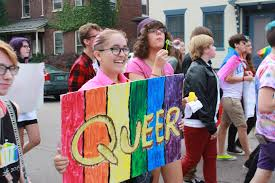
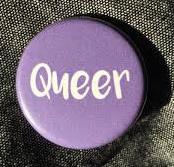
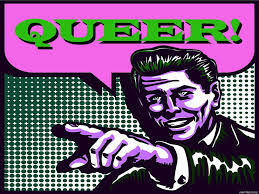
Jojo Siwa Identifies as Queer, Not
Lesbian
Queer: Umbrella Term or Slur?
Wikipedia: Queer
Reasons Why I Choose to Call Myself Queer
Is it Time to Retire the LGBTQ
Acronym For a New Identity?
What’s the
Difference Between Gay and Queer?
Urban Dictionary: Queer
Bustle: What Does Queer Mean?
LGBTQ People Explain How They
Love and Hate, the Word Queer
Cynthia Nixon: Why
I Identify as Queer
Bretman Rock:
Unapologetically Queer
The term is still considered by some to be offensive and
derisive. Certainly, there are those who recall past
experiences of harassment in which they were called
"queer" as an insult or putdown. Others regard it as a
re-appropriated term used to describe a sexual
orientation and/or gender identity or gender expression
that does not conform to heteronormative society.
In contemporary usage, some use "queer" as an inclusive,
unifying sociopolitical, self-affirming umbrella term
for people who are gay, lesbian, bisexual, pansexual,
asexual, transgender, transsexual, intersexual,
genderqueer, or of any other non-heterosexual sexuality,
sexual anatomy, gender identity, or gender expression.
"Queer" in this sense (depending on how broadly it is
defined) is commonly used as a simpler synonym for the
ever-expanding LGBTQQIIAA+ acronym.
Within the community, the term "queer" has come to mean
anyone who doesn’t identify under rigid binaries of
straight/gay or male/female or man/woman. It has
become an umbrella term for
sexual and gender minorities. The term can represent a
kind of freedom and acceptance which allows space for
individuality and acknowledges that each person’s
sexuality and identity is distinct from every other.
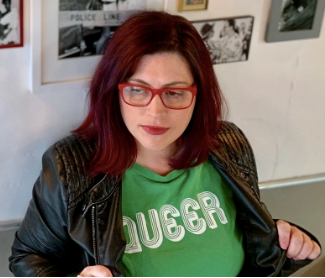
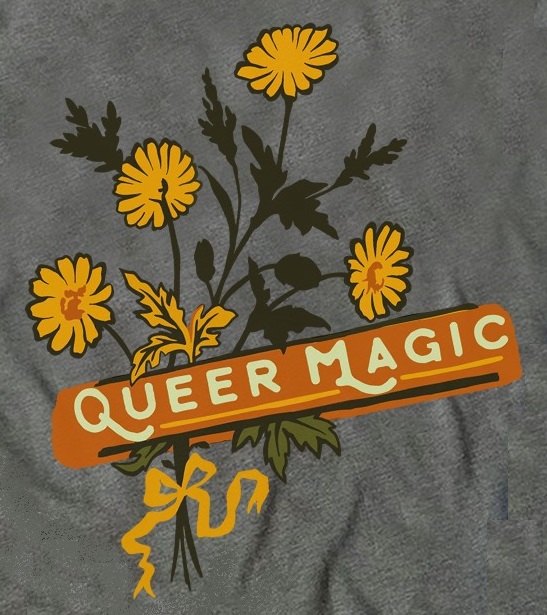
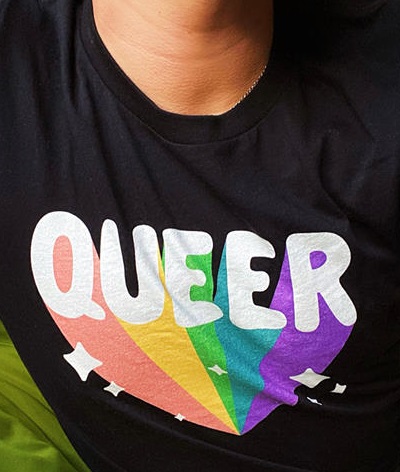
USA Today: What Does the Q Stand For?
Here’s What Gen Z Really Think About the Term
Queer
Info: Sexual
Orientation
Scholarly Insight: Queer
Communities
Why Does David Sedaris Fear the Word
Queer?
History of the Word Queer
Words the Queer Community Has Reclaimed (and Some We
Haven't)
The Term Queer: Offensive
or Empowering
Video History of the Word "Queer"
Queer 101: Identity and Inclusion
Queer: LGBTQ People Explain
Info: Gender
Queer
Video: What Does
Queer Really Mean?
Queer Definition
"Queer" is a great alternative to LGBT+. It 's
quicker to say. It doesn't relegate any identity to the
other side of the plus sign. It invites all LGBT+ folks
to be equal. It's cool being queer.
-John Wiswell
According to typical dictionary definitions, "queer" is
a slang expression, usually disparaging and offensive,
used to refer to a person who is homosexual, gay or
lesbian, or a person whose sexual orientation or gender
identity falls outside the heterosexual mainstream or
the gender binary.
Over the past two decades, an important change has
occurred in the use of the word "queer". The older,
strongly pejorative use has certainly not vanished, but
a use by some gay people and some academics as a neutral
or even positive term has established itself.
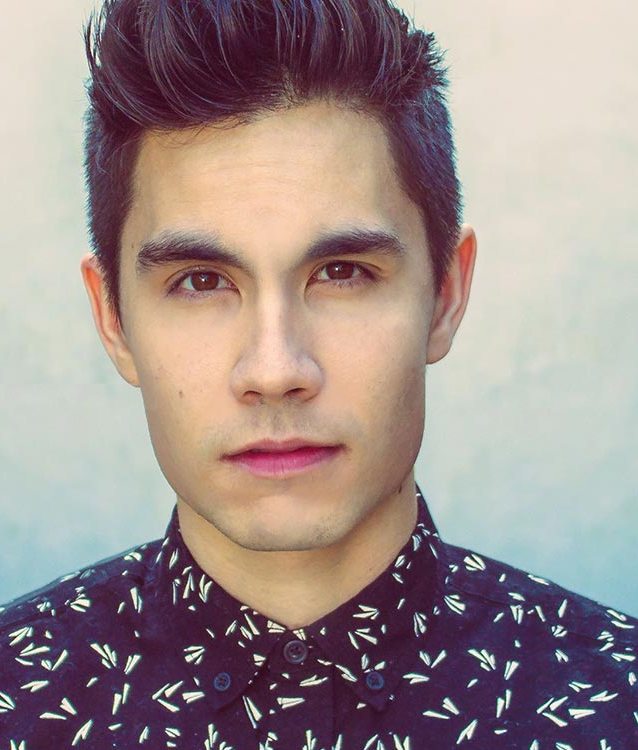
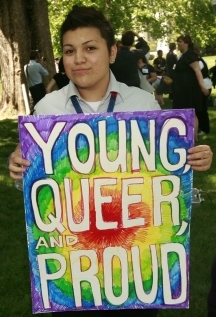
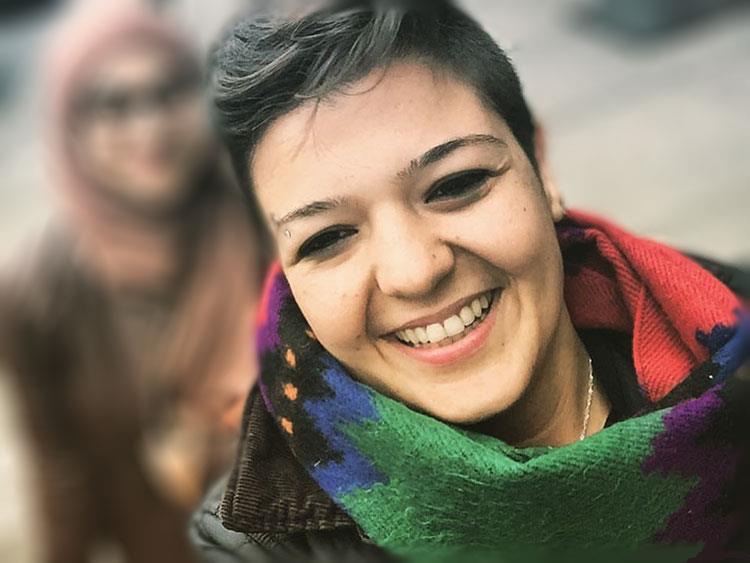
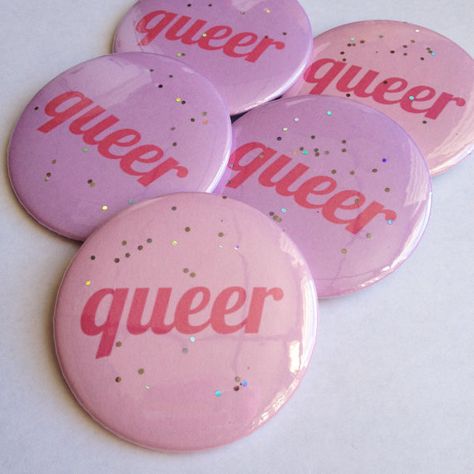
Queer: Offensive Term?
Cosmopolitan: Queer Means Identity and Community
Bustle: What Does Queer Mean?
Jojo Siwa Identifies as Queer, Not
Lesbian
Info: LGBTQ
Queer: Umbrella Term or Slur?
Is it Time to Retire the LGBTQ
Acronym For a New Identity?
Reasons Why I Choose to Call Myself Queer
Explaining Queer to Kids
Here’s What Gen Z Really Think About the
Term Queer
I like
using the word "queer." It saves time explaining myself.
It does a better job of being all-encompassing than a
string of letters. I like the idea that "queer" is vague
and doesn't insist on hard lines between categories.
And, "queer" means weird and I revel in it.
-Poster
on Queer Umbrella
The newer use is sometimes taken to be offensive,
especially by older gay men who recall its more
nefarious use as a putdown and insult.
The pink triangle was originally used by the Nazis to
denote homosexuality in male concentration camp
prisoners. It has since been reclaimed. Many LGBTQ-related
organizations use the inverted pink triangle as a symbol
of queer resistance, gay pride and gay rights.
Because of the context in which it was reclaimed,
"queer" has sociopolitical connotations, and is often
preferred by those who are activists, by those who
strongly reject traditional gender identities, by those
who reject distinct sexual identities such as gay,
lesbian, bisexual, and straight, and by those who see
themselves as oppressed by the heteronormativity of the
larger culture.
In
this usage it retains the historical connotation of
"outside the bounds of normal society" and can be
construed as "breaking the rules for sex and gender." It
can be preferred because of its ambiguity, which allows
queer-identifying people to avoid the sometimes strict
boundaries that surround other labels. In this context,
"queer" creates a space for a wider range of sexual
minorities.
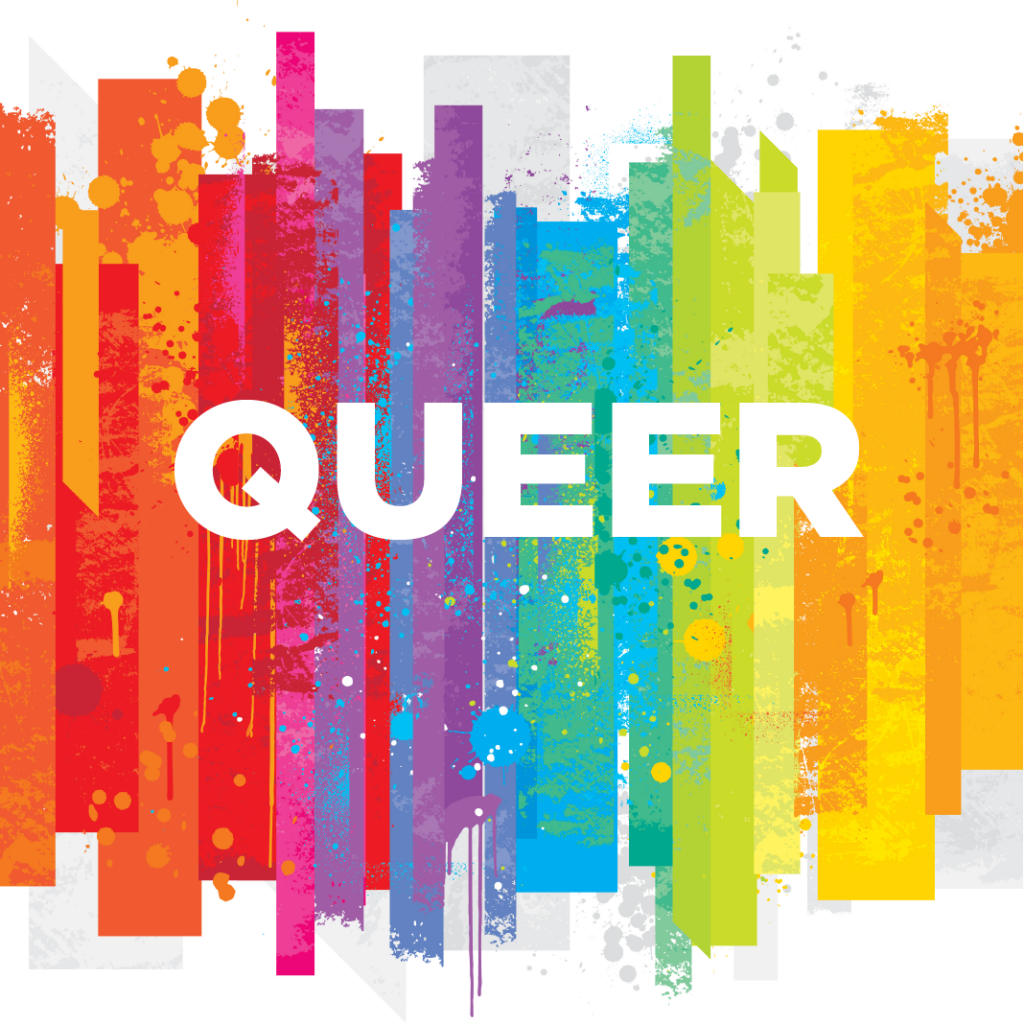
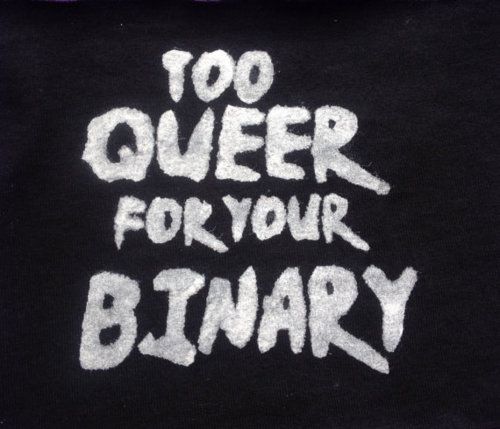
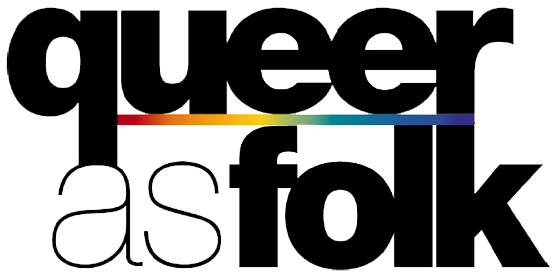
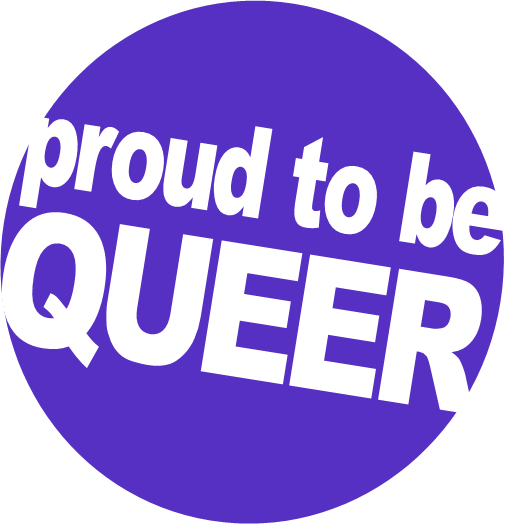
Wikipedia: Queer
Queer: LGBTQ People Explain
The Term Queer: Offensive
or Empowering
Urban Dictionary: Queer
History of the Word Queer
Here’s What Gen Z Really Think
About the Term Queer
USA Today: What Does the Q Stand For?
Video: What is
Queer?
Why Does David Sedaris Fear the Word
Queer?
Huff Post: What it Means to be Queer
Reclaiming Queer
"I
know how empowering it feels to reclaim words that have
been used to harm us, and I appreciate queer
specifically because it has always carried a sense of
undefined abstractness. Even as a slur, the word
described those who exist outside of what society
mandates, so it’s fitting that the term now defies all
restrictions of love and self that the world has placed
on us."
-Steven “Z” Patton
Beginning in the late-1980s, the label queer began to be
reclaimed from its pejorative use as a neutral or
positive self-identifier by LGBT people. An early
example of this usage by the LGBT community was by an
organization called Queer Nation, which was formed in
March 1990 and circulated an anonymous flier at the New
York Gay Pride Parade in June 1990 titled "Queers Read
This". The flyer included a passage explaining their
adoption of the label queer:
“Ah, do we really have to use that word? It's trouble.
Every gay person has his or her own take on it. For some
it means strange and eccentric and kind of mysterious.
And for others queer conjures up those awful
memories of adolescent suffering. Well, yes, gay
is great. It has its place. But when a lot of lesbians
and gay men wake up in the morning we feel angry and
disgusted, not gay. So we've chosen to call ourselves
queer. Using queer is a way of reminding us how
we are perceived by the rest of the world.”
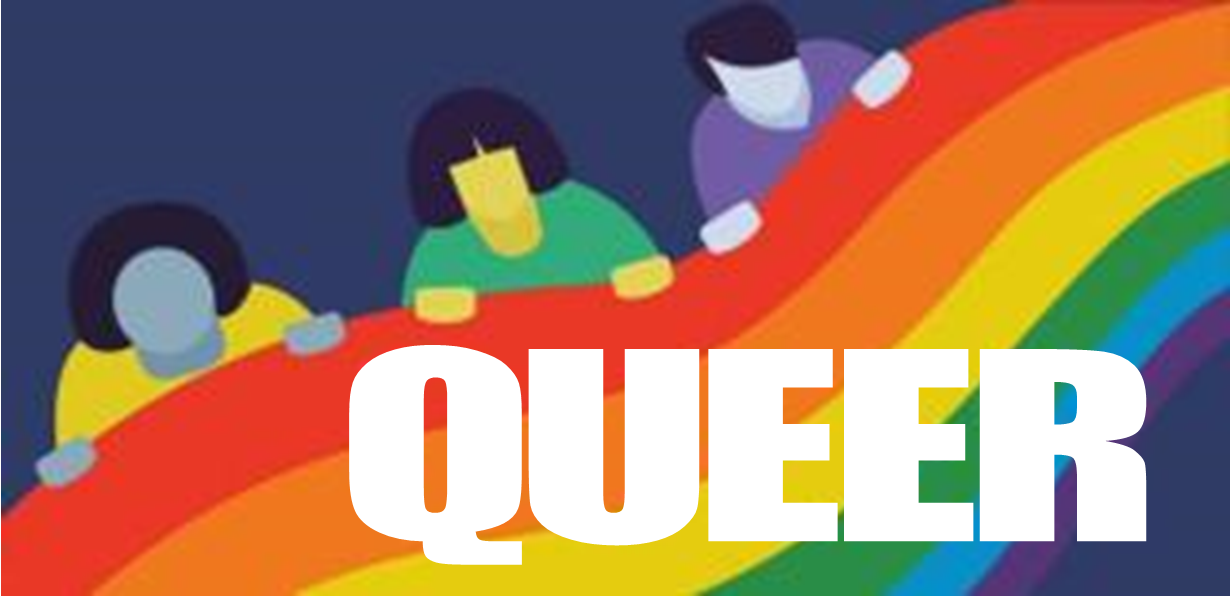
Wikipedia: Queer
Urban Dictionary: Queer
Is it Time to Retire the LGBTQ
Acronym For a New Identity?
Bustle: What Does Queer Mean?
Video History of the Word "Queer"
Queer 101: Identity and Inclusion
Info: Sexual
Orientation
Reasons Why I Choose to Call Myself Queer
Queer: LGBTQ People Explain
Jojo Siwa Identifies as Queer, Not Lesbian
Video:
What is Queer?
USA Today: What Does the Q Stand For?
Explaining Queer to Kids
Queerness in
Practice
"Queer"
signifies that someone is not straight and/or not
cisgender. It applies to both sexual orientation and
gender identity. Using the word "queer" allows you to
connect with the LGBTQ community without having to pick
a box. Queer encourages respect of the fluidity of
sexuality and gender, allows room for evolution and
growth, and acknowledges that attraction (both romantic
and sexual) exists both in and outside of those labels.
Some people experience multiple ways of being queer,
including sexual, gender, or relationship fluidity,
instead of identifying with just one dimension of the
LGBTQ experience. Therefore, claiming a "queer" identity
allows for an unlimited, personalized and unfolding
experience of being, feeling, and expressing queerness.
Your queer identity doesn't change based on who you
date. If you identify as "queer," this doesn't suddenly
change or shift based on who you date. There are many
people who mistakenly think that identity is contingent
on your current relationship, and it absolutely is not.
Identity is more stable, but the expression of it in
terms of who you are romantically attracted to (sexually
attracted to, who you date, who you have sex with) can
be very fluid and doesn’t change your underlying
identity. Whether someone is in a same-sex relationship,
a different gender one, or another arrangement, and no
matter what their gender identity might be, their
identity is their identity.
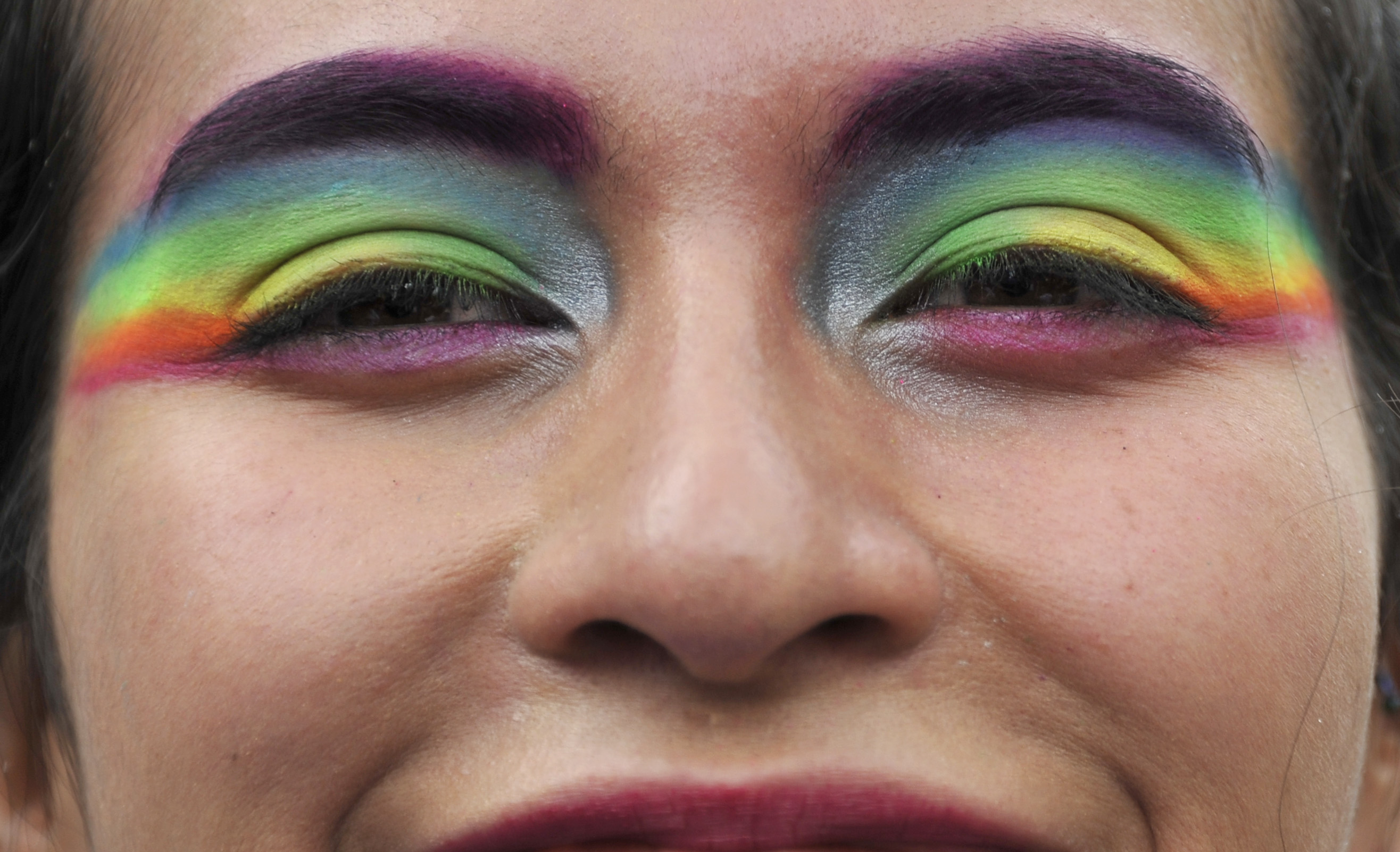
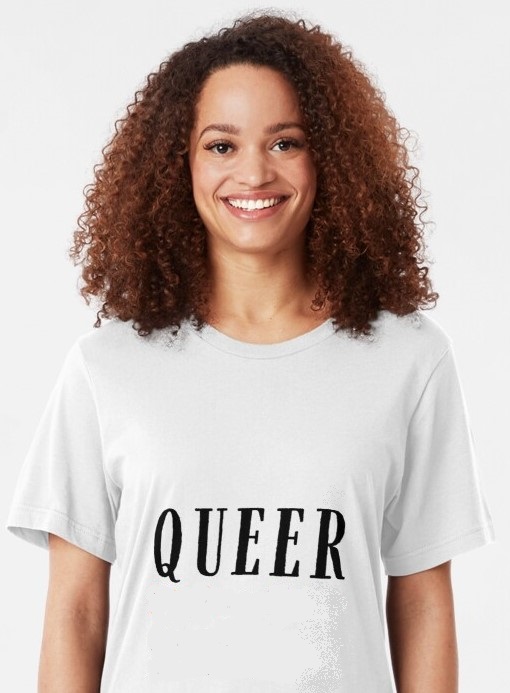
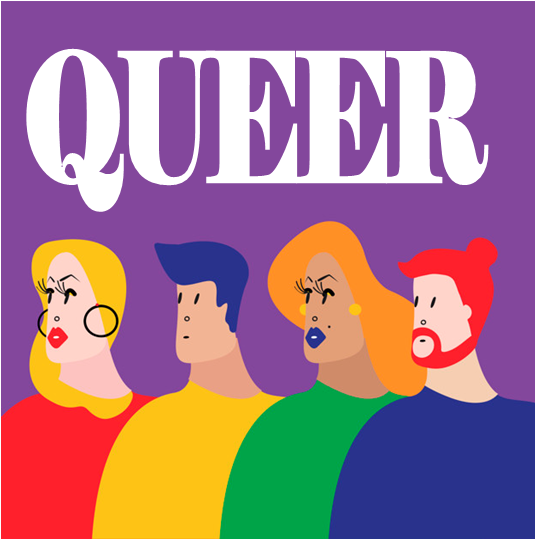
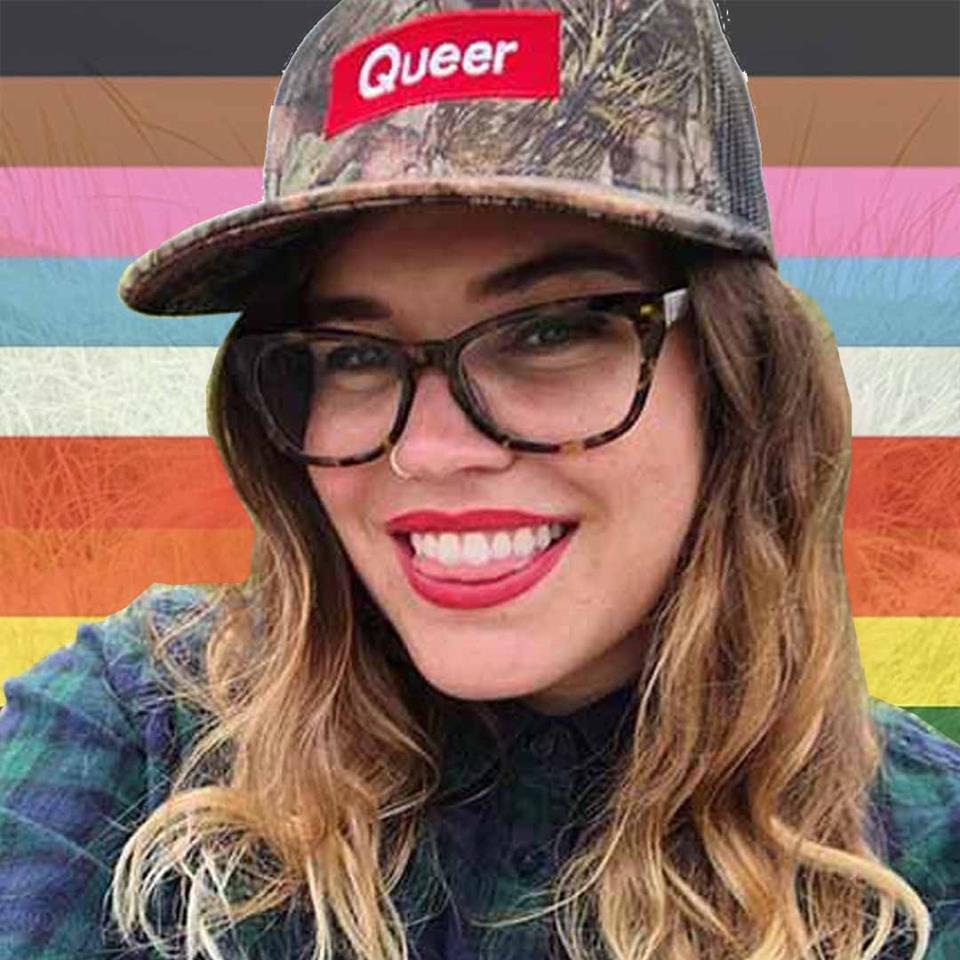
Wikipedia: Queer
Queer: Umbrella Term or Slur?
Info: LGBTQ
Is it Time to Retire the LGBTQ
Acronym For a New Identity?
Reasons Why I Choose to Call Myself Queer
Scholarly Insight:
Queer Communities
Bustle: What Does Queer Mean?
Video History of the Word "Queer"
Urban Dictionary: Queer
Queer: Offensive Term?
Video:
What is Queer?
USA Today: What Does the Q Stand For?
Explaining Queer to Kids
Queerness can encompass both sexuality and gender
identity. Rather than allowing for only two seemingly
opposite (or binary) genders of men and women, or two
sexes of male and female, queerness expands the
possibilities for multiple genders, sexes, sexualities,
expressions, identities. This means you can have a queer
sexual orientation, gender identity, gender or sexual
expression, romantic orientation, and more.
Being queer doesn't have any one look. While the meaning
of "queer," at its core, is to bend or twist the norm,
there's no one "queer" look, and your identity is valid
no matter your haircut or outfit. One common
misconception about being queer is that queerness is
something visible, or that having an unconventional look
or style is an indicator of being queer. While some
queer-identified people may express themselves by
wearing non-normative fashion, hairstyles, and so on, it
is impossible to distinguish who is queer and who isn’t
based on a distinct way of acting, dressing, talking,
behaving, and so on. Being
queer is an identity, not a fashion statement.
"Queer" has come to be an umbrella term for LGBTQ folks
all across the spectrum of gender and sexual minorities.
Asexuality, non-binary identities, being intersex,
demisexuality, and more all have a place within the
LGBTQ community, and "queer" can be a way to speak to
all these identities without leaving anyone out of the
acronym.
[Source: Marrissa Higgins, Lauren Canonico, Satori
Madrone]

What Does Queer Mean Today?
Info: Sex and Gender
Jojo Siwa Identifies as Queer, Not
Lesbian
Cosmopolitan: Queer Means Identity and Community
Video: What Does
Queer Really Mean?
Queer: History Behind the Word
Explaining Queer to Kids
Why Does David Sedaris Fear the Word
Queer?
PFLAG:
Definition of Queer
Info: Sexual
Orientation
How the Word Queer Was Adopted by the LGBTQ Community
Is it Time to Retire the LGBTQ Acronym
For a New Identity?
Evolution of the
Queer Term
"At
this stage in my life, given the experiences I've had,
queer feels more inclusive to me. I know different
people have different perspectives, but for me, it
represents an inclusive umbrella term that speaks to
me."
-Kristy Zoshak
These
days, the word “geek” has become almost a cool term for
a computer savvy, but perhaps socially inept person.
Even though that happened with little input from the
“geeks” themselves, the term does seem to be a reclaimed
term of pride used by that community.
Originally a derogatory name for a homosexual, “queer”
has been embraced by some in the non-heterosexual
community. In response, some activists in the gay community
started calling themselves “queer” in a proud way.
Since it first showed up in English about 1513, “queer”
has always meant something not normal, something
peculiar, something odd. Counterfeit money was “queer."
Someone who is sick might say they “feel queer."
Playground bullies would call someone “queer” without
knowing or intending any sexual connotations.
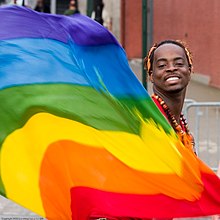
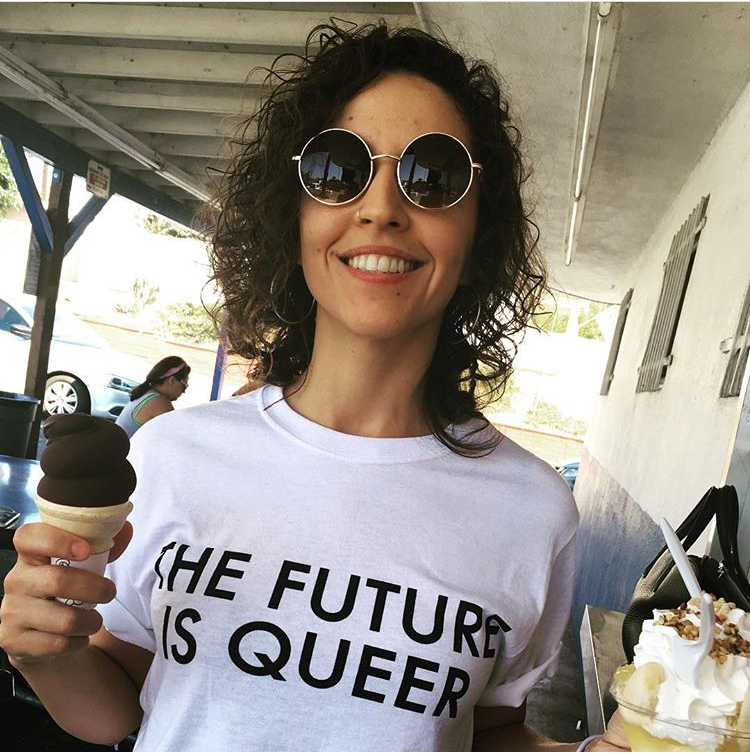
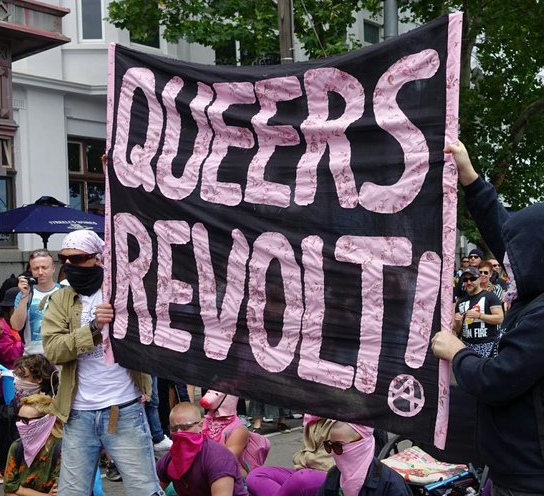
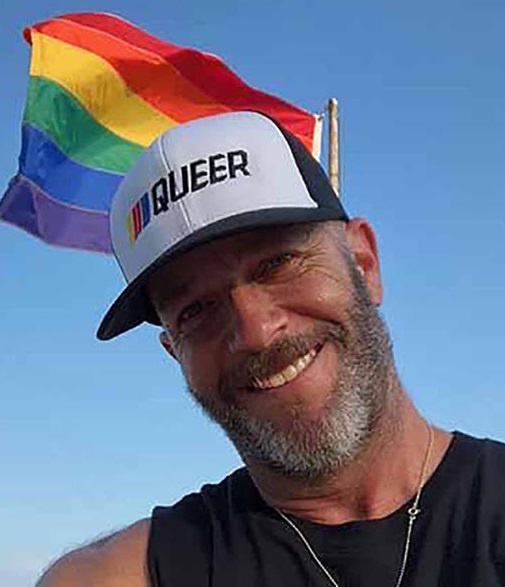
Here’s What Gen Z Really Think About the
Term Queer
USA Today: What Does the Q Stand For?
Queer: LGBTQ People Explain
The Term Queer: Offensive
or Empowering
What Does Queer Mean Today?
Info: Sex and Gender
The Term
Queer: Offensive or Empowering
Cosmopolitan: Queer Means Identity and Community
Video: What Does
Queer Really Mean?
Queer: History Behind the Word
The Oxford
English Dictionary says the noun “queer” was first used
to mean homosexual by the Marquess of Queensbury, in
1894. The Concise New Partridge Dictionary of Slang says
the adjective “queer” began to mean “homosexual” about
1914, mostly in the United States, and notes it was
“derogatory from the outside, not from within,” a hint
that it was being embraced as a self-description even
then.
The 1965 printing of Webster’s New World Dictionary,
College Edition, lists “queer,” noun and adjective, as
slang for homosexual. Not offensive slang, just slang.
Webster’s
New World College Dictionary, Fifth Edition, the current
one, used by the Associated Press and many news
organizations, is expansive by comparison. It lists
“queer” this way: “Slang for homosexual: in general
usage, still chiefly a slang term of contempt or
derision, but lately used as by some academics and
homosexual activists as a descriptive term without
negative connotations.”
The Dictionary of American Slang says “in the early
1990s queer was adopted as a non-pejorative
designation by some homosexuals, in the spirit of gay
pride.” The OED says that transformation began in
the late 1980s.
What was happening then? It was the gay rights movement,
spurred in part by the AIDS epidemic. Some sources trace
the first adoption of “queer” as a positive self-label
to the group Queer Nation, founded in the early 1990s as
a radical organization to combat violence against
homosexuals. “By co-opting the word ‘queer,’ QN claims,
they have disarmed homophobes,” Newsweek wrote in 1991.
Queer Nation was an offshoot of ACT UP, which stood for
the AIDS coalition to Unleash Power, founded in 1987 as
a protest group demanding more action to solve the AIDS
crisis.
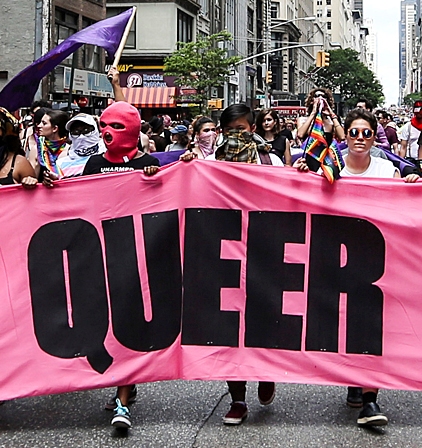
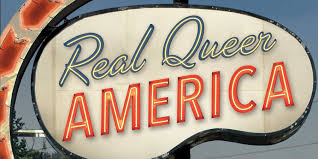
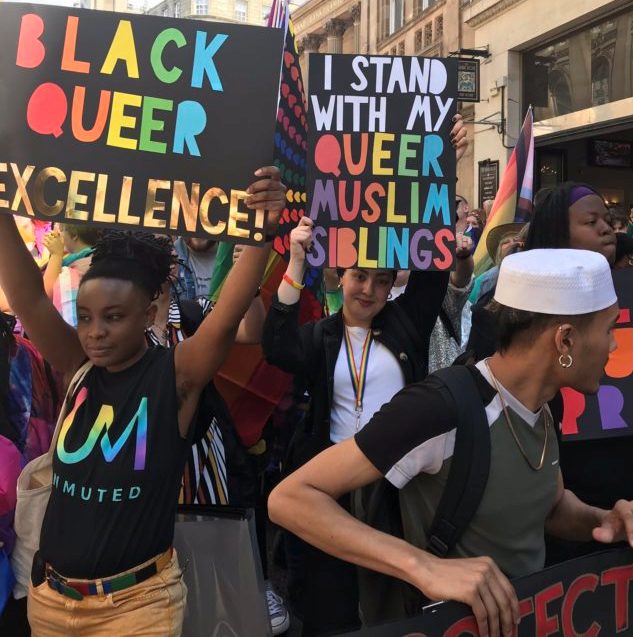
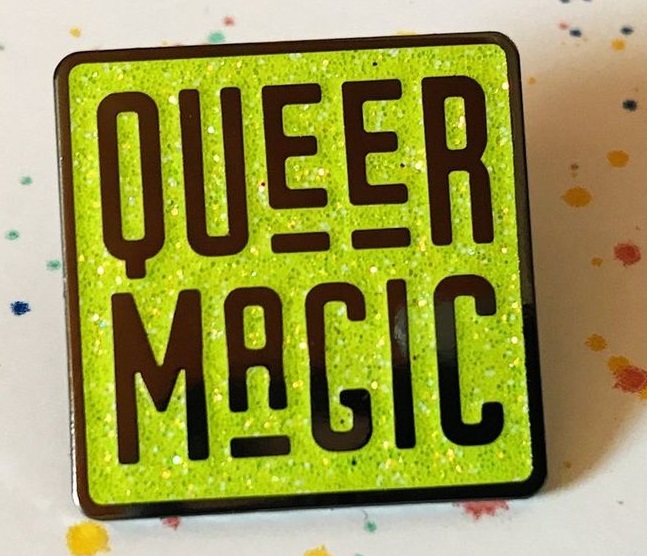
Gay Times: Reclaiming the Word Queer
Cosmopolitan: Queer Means Identity and Community
Explaining Queer to Kids
Scholarly Insight: Queer
Communities
LGBTQ People Explain How They Love and Hate the Word
Queer
Bustle: What Does Queer Mean?
PFLAG:
Definition of Queer
What Does Queer Mean Today?
Info: Sex and Gender
Huff Post: What it Means to be Queer
Is it Time to Retire the LGBTQ Acronym
For a New Identity?
Since
then, “queer” has expanded beyond meaning only
“homosexual.” In fact, “queer” does not have a single
meaning, except perhaps “not heterosexual.” Some people
who identify as neither male nor female call themselves
“genderqueer,” while others who identify that same way
might call themselves “gender-fluid” or “nonbinary.”
Even the “Q” in LGBTQ stands for “queer.”
“Queer” is a label, one adopted by some people, rejected
by others. So it can’t be used to describe individuals,
a group of specific individuals, or their gender
orientations, unless their preference is known. And it
can still sting. As the AP Stylebook says: “Queer is
acceptable for people and organizations that use the
term to identify themselves. Do not use it when intended
as a slur.”
The New York Times Manual of Style and Usage says:
“queer, in the sense of homosexual, should be treated as
an offensive slur, but with a limited exception. Some
gay men and lesbians have rehabilitated the term as an
ironic badge of pride. In that sense, it may be used
when the viewpoint is unmistakable. The term is
acceptable in references to the emerging academic field
of queer studies.”
[Source: Merrill Perlman, Columbian Journalism Review, Jan 2019]

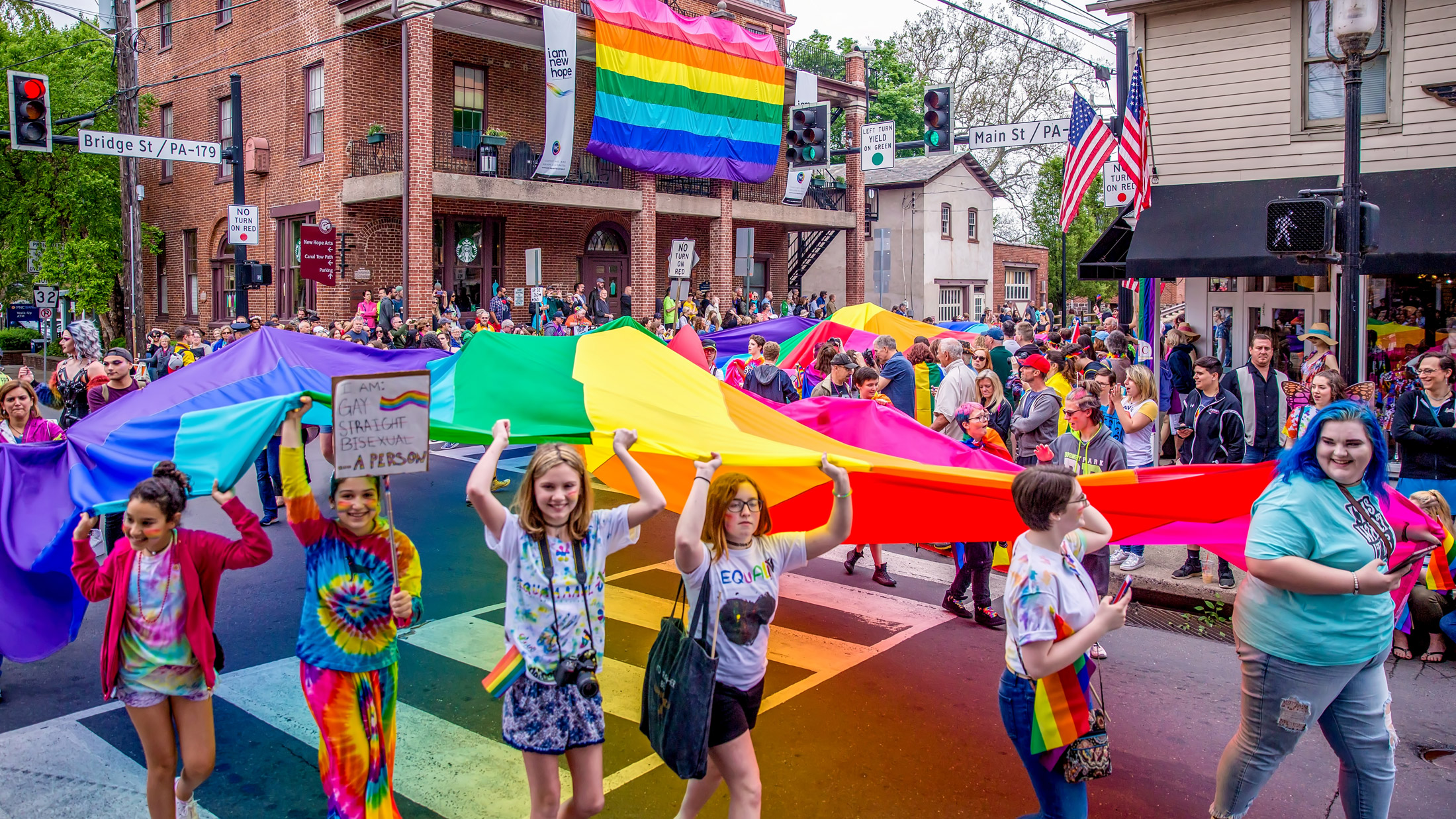
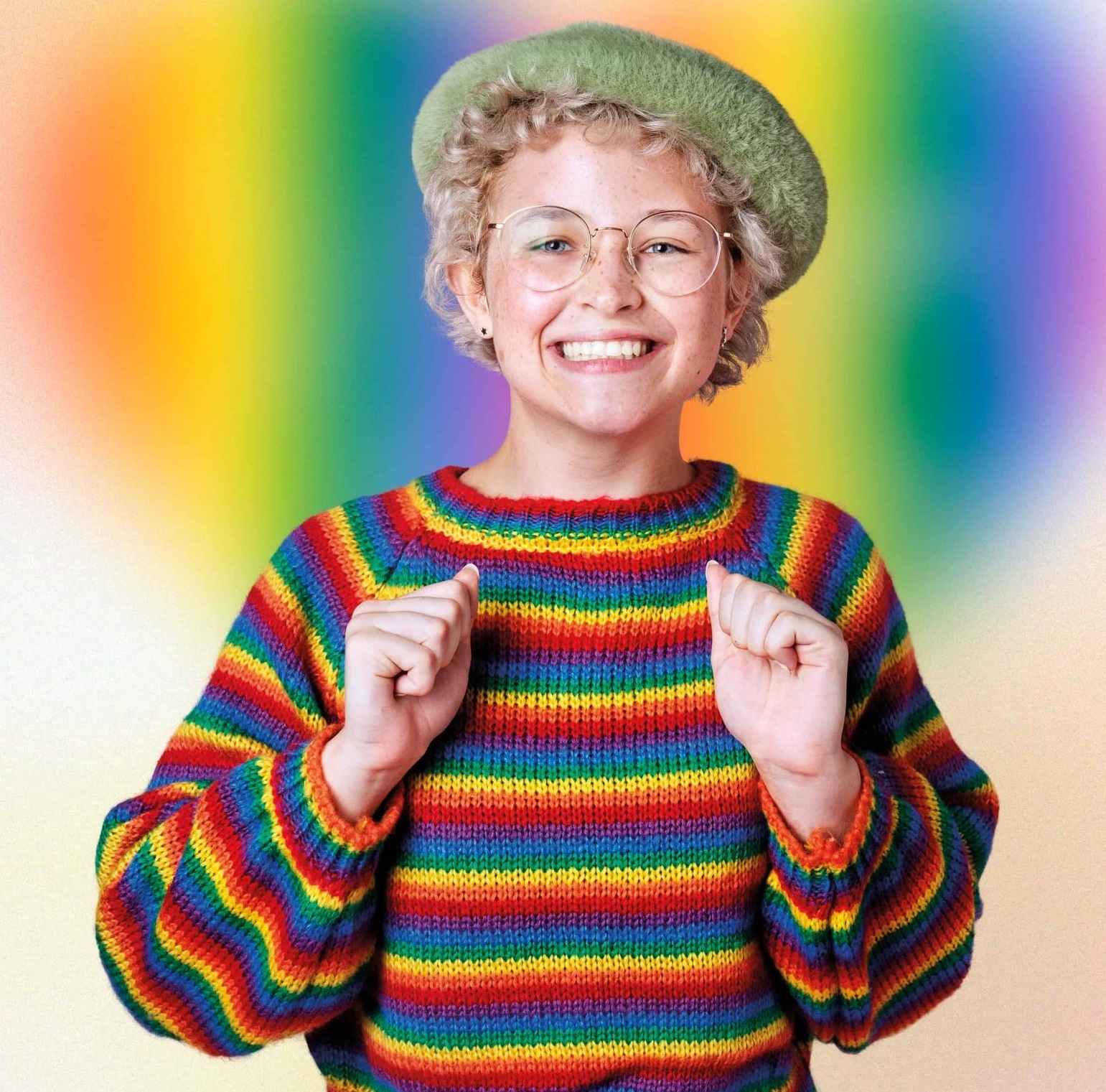
Wikipedia: Queer
Urban Dictionary: Queer
Bustle: What Does Queer Mean?
Video History of the Word "Queer"
Queer 101: Identity and Inclusion
Info: Sexual
Orientation
Queer: LGBTQ People Explain
Video:
What is Queer?
USA Today: What Does the Q Stand For?
Explaining Queer to Kids
What Does Queer
Mean?
The term queer can include a variety of sexual
identities and gender identities that are anything other
than straight and cisgender.
In the past, "queer" was a word used to hurt and insult
people. Some people still find it offensive,
particularly those who remember when that word was used
in a painful way. Others now use the word with pride to
identify themselves.
You may not want to refer to someone as "queer" unless
you know that’s how they identify themselves. When
talking to someone about their sexual orientation, use
the terms that they use. It’s okay (and often
encouraged) to ask what labels folks prefer.
[Source: Planned Parenthood]
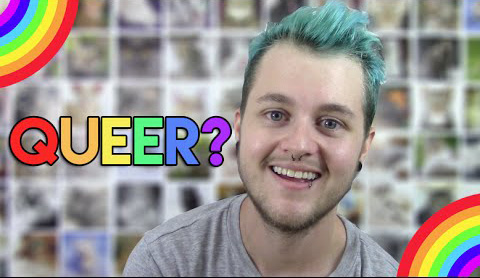
Wikipedia: Queer
Queer: Umbrella Term or Slur?
Info: LGBTQ
Is it Time to Retire the LGBTQ
Acronym For a New Identity?
Cynthia Nixon: Why
I Identify as Queer
Bustle: What Does Queer Mean?
Why Does David Sedaris Fear the
Word Queer?
Video History of the Word "Queer"
Urban Dictionary: Queer
Jojo Siwa Identifies as Queer,
Not Lesbian
LGBTQ People Explain How They Love and Hate the Word
Queer
Queer: Offensive Term?
Reasons Why I Choose to Call Myself Queer
Explaining Queer to Kids
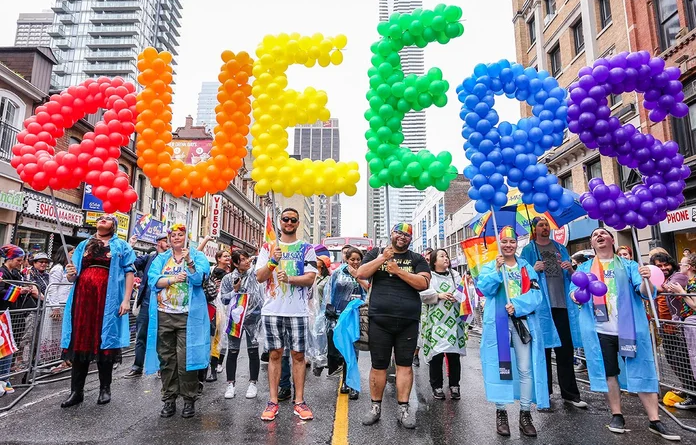
What Does It
Really Mean to Be Queer
Did you know "queer" was
both used as an identity and community term?
Queer is a word that clarifies that I’m not straight and
ties me to the larger queer community, but it doesn’t
categorize me as gay. The vagueness of the term is
intentional. Queer is an identity created for anyone
outside of the heterosexual norm and meant to be
inclusive and create a sense of acceptance.
Okay, so what does “queer” mean? Language evolves with
society, often due to the brute force and fierceness of
those who wish to see change. Such is the case for
queer, a term predominantly used by the LGBTQ community
to stake a contrast from mainstream, heteronormative
society. When I think about "queer," I just think
"different."
While all labels used to describe one’s sexual
orientation are unique to the individual, unlike
homosexual (an attraction to the opposite gender), queer
is an umbrella term that can be used by anyone under the
LGBTQ spectrum. Queer conveys both an orientation and a
sense of community.
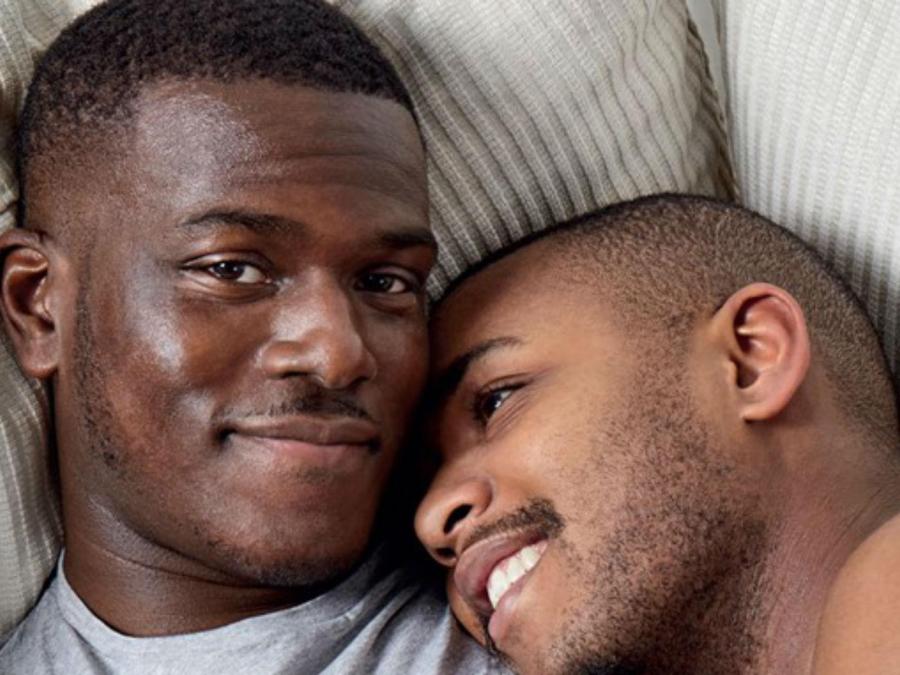

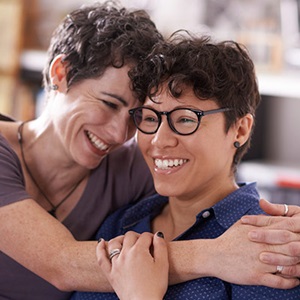
Queer: Umbrella Term or Slur?
Gay Times: Reclaiming the Word Queer
Info: Sex and Gender
Huff Post: What it Means to be Queer
PFLAG:
Definition of Queer
Info: Sexual
Orientation
How the Word Queer Was Adopted by the LGBTQ Community
USA Today: What Does the Q Stand For?
Queer: LGBTQ People Explain
Scholarly Insight: Queer
Communities
Here’s What Gen Z Really Think About the
Term Queer
The community aspect states, "Because we’re all
different, we can celebrate our differences. I can
accept you for who you are, and there’s power in
numbers." There’s an aspect to it that doesn’t allow for
isolation. Some folks who fall somewhere in the middle
of the sexual orientation spectrum will describe
themselves as queer rather than bisexual (attraction to
both your own gender and genders other than your own) or
pansexual (attraction regardless of gender). Others will
use both and introduce themselves as “bisexual and
queer,” for instance. The term queer is also used by
those whose gender does not fall on the binary.
The celebration and use of the word queer is one of
reclamation. Not too long ago, queer was still used as a
slur. Back in the day, definitely when I was growing up,
the word ‘queer’ was a derogatory term. The reclamation
of the word is like, "This is who I am. We don’t need to
be like everyone else. Let’s celebrate our differences,
and don’t try to put me in any sort of box of who you
need me to be because I’ll continuously try to break
down the boxes.” It is worth noting that while the word
queer is generally celebrated, some LGBTQ folks still
prefer to avoid it due to its discriminatory history.
[Source: Sophie Saint Thomas and Dr. Kelly Wise,
Cosmopolitan, Aug 2019]
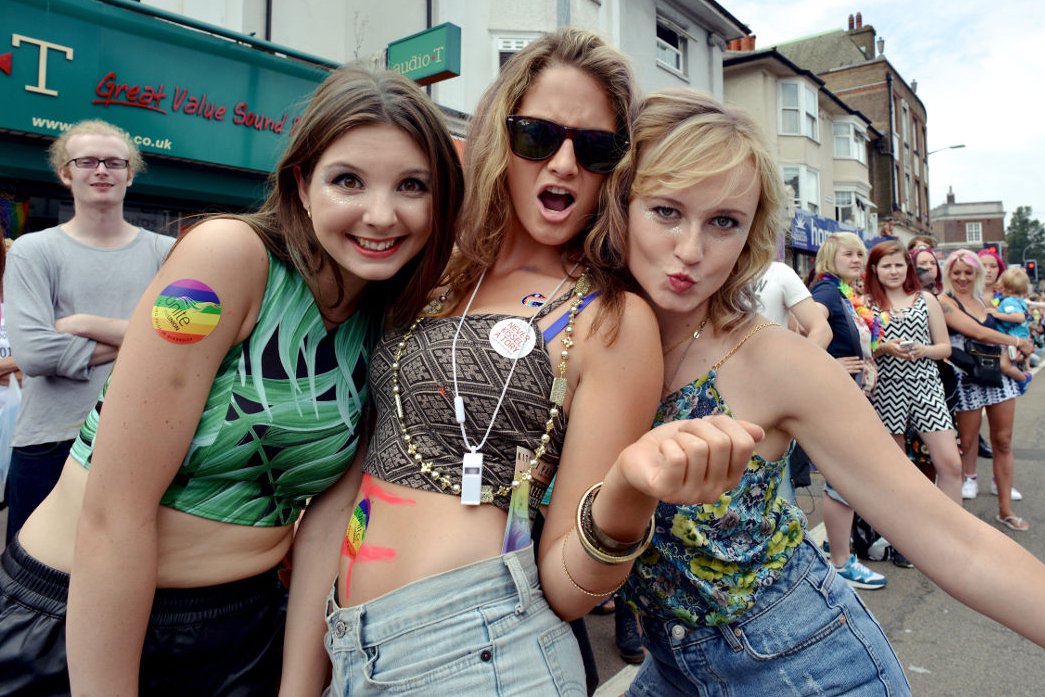
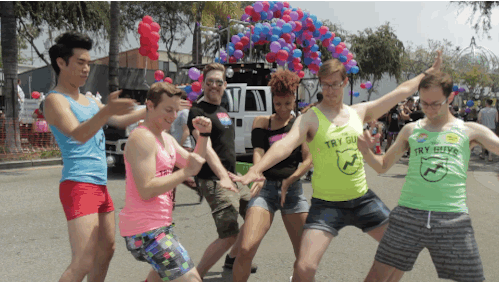
Wikipedia: Queer
Urban Dictionary: Queer
The Term Queer:
Offensive or Empowering
Scholarly Insight:
Queer Communities
History of the Word Queer
LGBTQ People Explain How They
Love and Hate the Word Queer
Queer 101: Identity and Inclusion
Info: Sexual
Orientation
Video:
What is Queer?
Is it Time to Retire the LGBTQ
Acronym For a New Identity?
Reasons Why I Choose to Call Myself Queer
Millennials and the Word Queer
Bustle: What Does Queer Mean?
Six Reasons to
Use the Word Queer
The word "queer" has a complex history. With a literal
meaning of "unusual, strange, or odd," people used queer
as a pejorative towards members of the LGBTQ community
in the late 19th century. It was specifically used for
men who acted effeminate. However, starting in the
1980s, members of the LGBTQ community began reclaiming
the word. Today, the word “queer” no longer has a
hateful connotation. For that, you can thank the LGBTQ
community. Queer is a powerful word, and here are 6
reasons you should use it more.
"Queer" communicates inclusivity - The word “queer” is
inclusive for all members of the LGBTQ community. As the
LGBTQ community grows to recognize all genders and
sexualities, a word to reflect the community’s diverse
membership is desperately needed. The most inclusive
acronym currently in use is LGBTQQIAAP (Lesbian, Gay,
Bisexual, Transsexual, Queer, Questioning, Intersex,
Asexual, Allies, Pansexual), but that still leaves
out many genders and sexualities (and is ridiculously
long).
"Queer" is the un-label-y-ist of labels - Labels can be
harmful, especially for those of us who don’t feel as
though we neatly fit into any label. Having the word
“queer” as an umbrella term for all sexualities and
genders helps to solve the problem. It also accurately
describes sexuality as fluid, which it is for many
people.
There is power in reclaiming "Queer" - There is great
power in taking a word that once was hurtful and making
it our own. It’s a feat of the LGBTQ community, and one
in which we should take great pride.
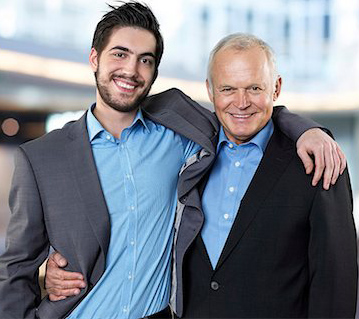
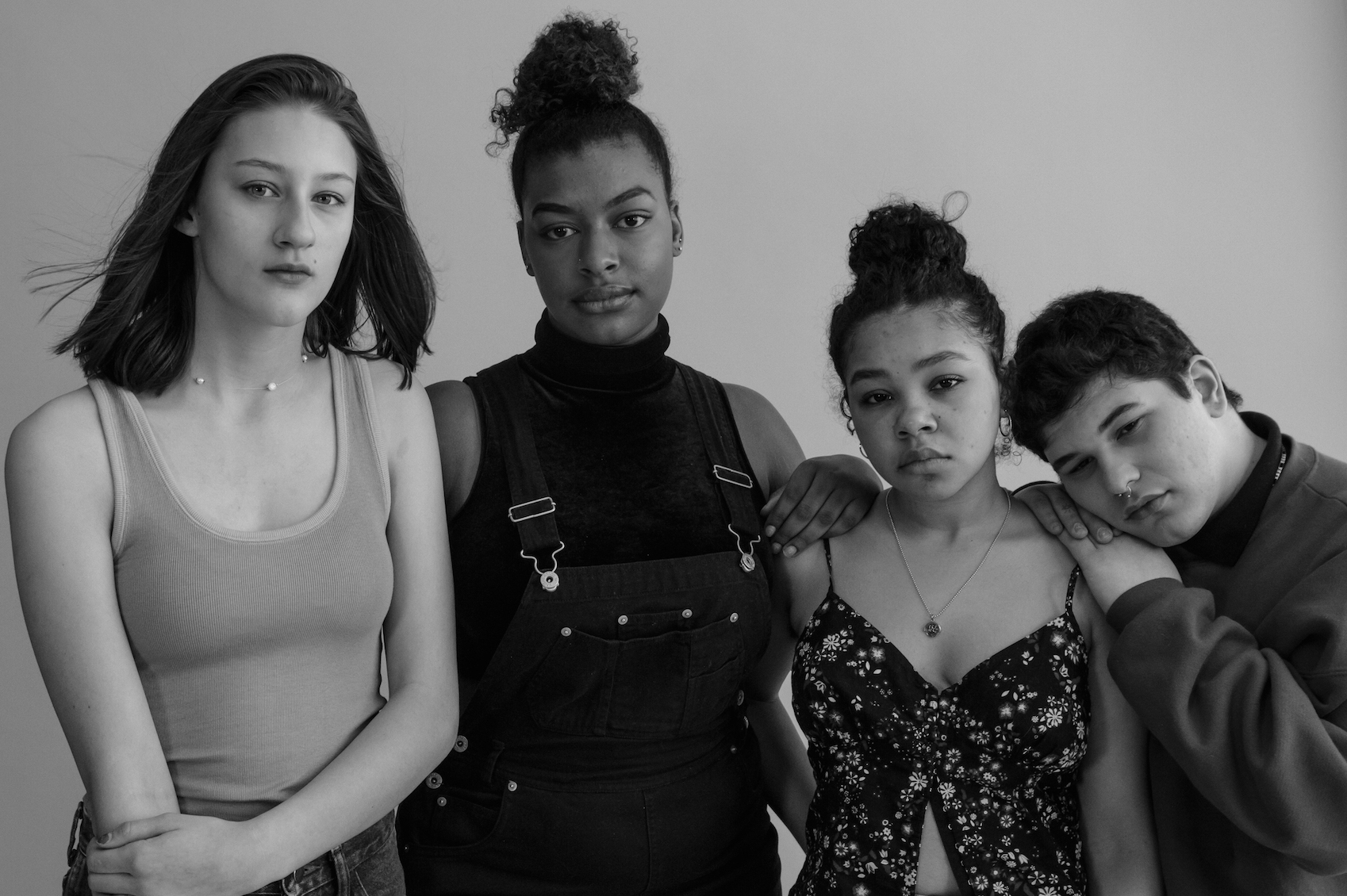
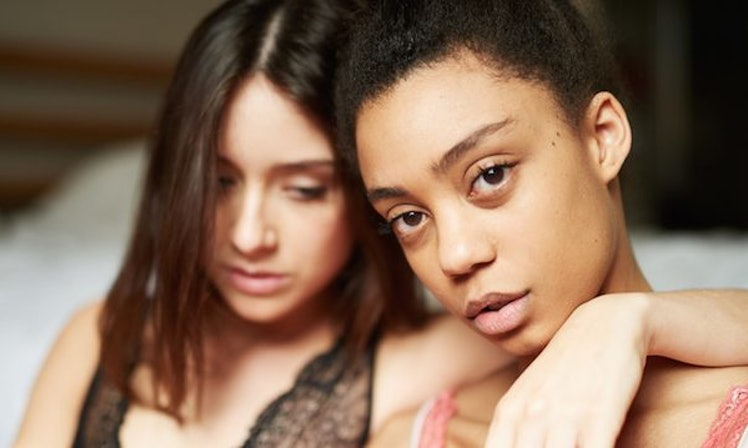
"Queer" is necessary for
those questioning - Some of us knew we were part of the
LGBTQ community from a very early age. Unfortunately,
this isn’t the case for all of us. Having a term that,
for lack of better words, keeps our options open as we
question and discover our genders and sexual identities
can be liberating. It allows us to explore without
feeling confined.
"Queer" breaks down binaries - The belief in sexual and
gender binaries is one of the biggest and most harmful
fallacies for members of the LGBTQ community. It
perpetuates biphobia, panphobia and queerphobia. Having
an inclusive term that’s non-binary helps dispel
misconceptions about gender and sexuality. It can be a
powerful tool in combating LGBTQ phobias.
"Queer" unites the LGBTQ community - Despite being one
community, there are still hostility and misconceptions
between subgroups of the LGBTQ community. While we
should celebrate our differences in gender and
sexuality, we must remember that we are still part of a
larger community. The word “queer”unites us.
[Source: Zachary
Zane]
Jojo Siwa Identifies as Queer, Not
Lesbian
USA Today: What Does the Q Stand For?
Explaining Queer to Kids
Queer: LGBTQ People Explain
Here’s What Gen Z Really Think About the
Term Queer
Queer: Umbrella Term or Slur?
Gay Times: Reclaiming the Word Queer
Info: Sex and Gender
Cosmopolitan: Queer Means Identity and Community
PFLAG:
Definition of Queer
Video History of the Word "Queer"
Huff Post: What it Means to be Queer
Info: LGBTQ
Is it Time to Retire the LGBTQ Acronym
For a New Identity?
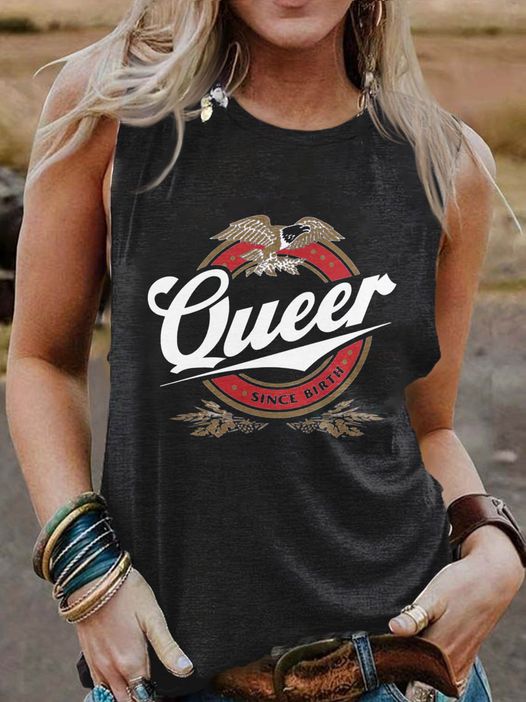
The Q Word
Several television shows, including Queer as Folk,
Queer
Eye For The Straight Guy, and the cartoon Queer Duck,
have also used the term "queer" in their titles. This
commonplace usage has, especially in the American
colloquial culture, led to a more positive connotation
of the word "queer" and has recently led to the more hip
and iconic abbreviation "Q".
There has sprung up a variety of special interest
categories and subject matter that employ the positive
use of the term "queer."
Queer Studies as an academic discipline is now
established at many universities. There is a
sociological perspective known as Queer Theory.
Queer Theory, as
defined by Kumashiro in his book Against Common
Sense, posits that “being normal requires thinking
in only certain ways, feeling only certain things, and
doing only certain things. And it punishes those who do
not conform, such as those who do not look normal, or
love the right kind of person, or value the important
things.”
In Fenton Johnson’s essay, Future of Queer, he
sets forth that “What defines queer is not necessarily
what one does in bed, but one’s stance towards the
status quo.”
You can also find Queer Culture, Queer Nation, Queer
Cinema, Queer Lounge, Queer Theology, Queer Nationalism,
Queer Literature, Queer Art, Queer History, Career
Careers, and Queer Youth.
Why Does David Sedaris Fear the Word
Queer?
Gay Times: Reclaiming the Word Queer
Video History of the Word "Queer"
PFLAG:
Definition of Queer
Huff Post: What it Means to be Queer
Bustle: What Does Queer Mean?
Queer: History Behind the Word
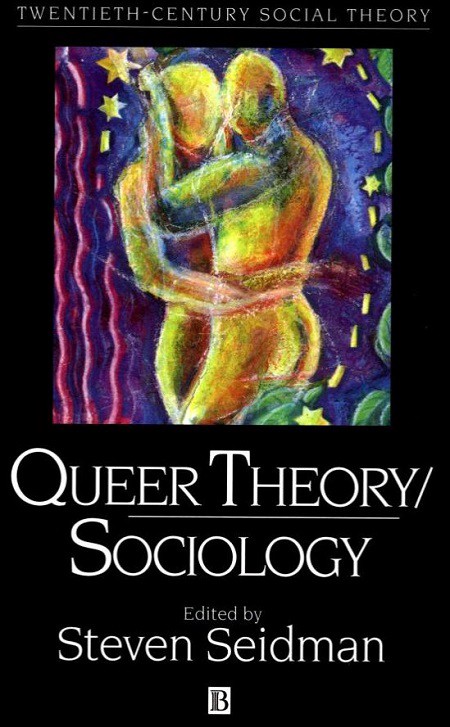
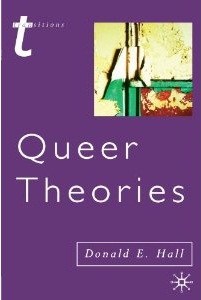
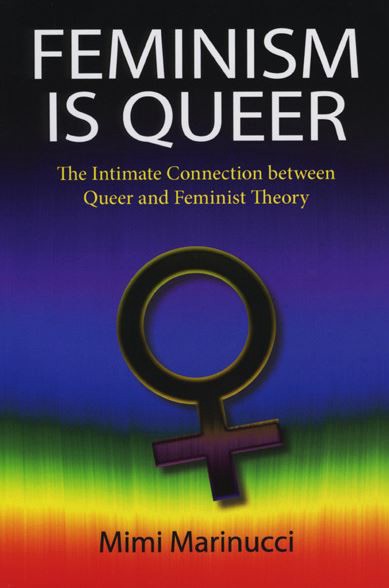
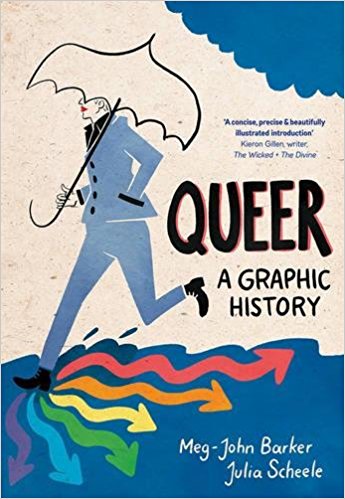
Queer Academia
In academia, the term “queer” and the related verb
“queering” broadly indicate the study of literature,
discourse, academic fields, and other social and
cultural areas from a non-heteronormative perspective.
It often means studying a subject against the grain from
the perspective of gender studies.
Queer Studies is the study of issues relating to sexual
orientation and gender identity usually focusing on
LGBTQ people and cultures. Originally centered on LGBTQ
history and literary theory, the field has expanded to
include the academic study of issues raised in biology,
sociology, anthropology, history of science, philosophy,
psychology, sexology, political science, ethics, and
other fields by an examination of the identity, lives,
history, and perception of queer people.
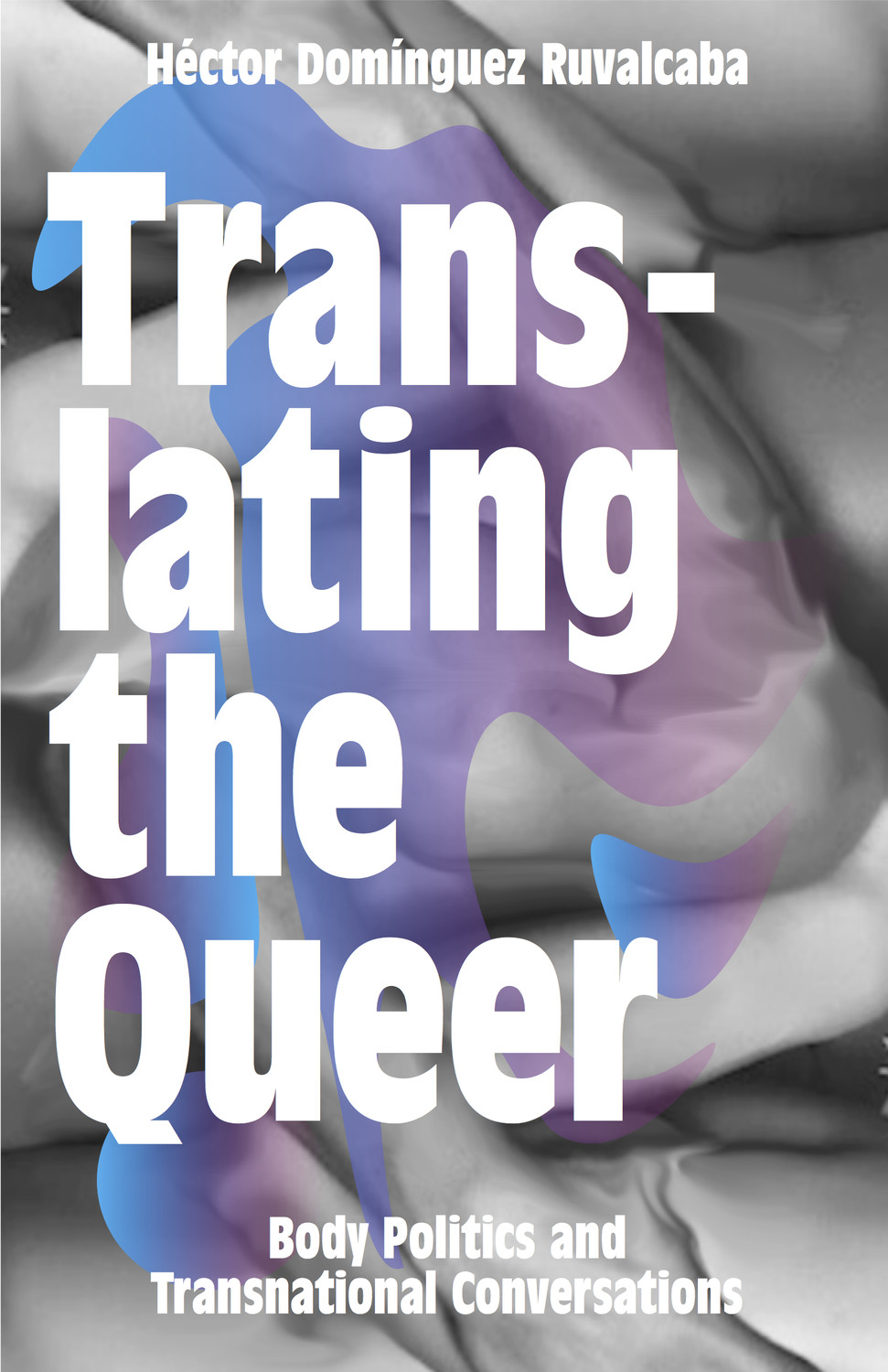
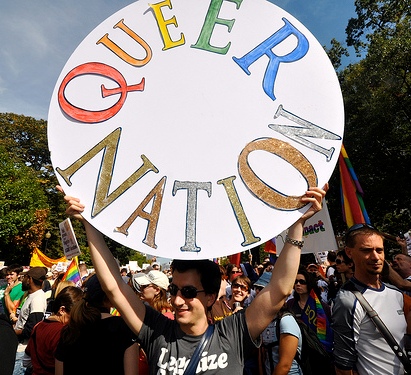
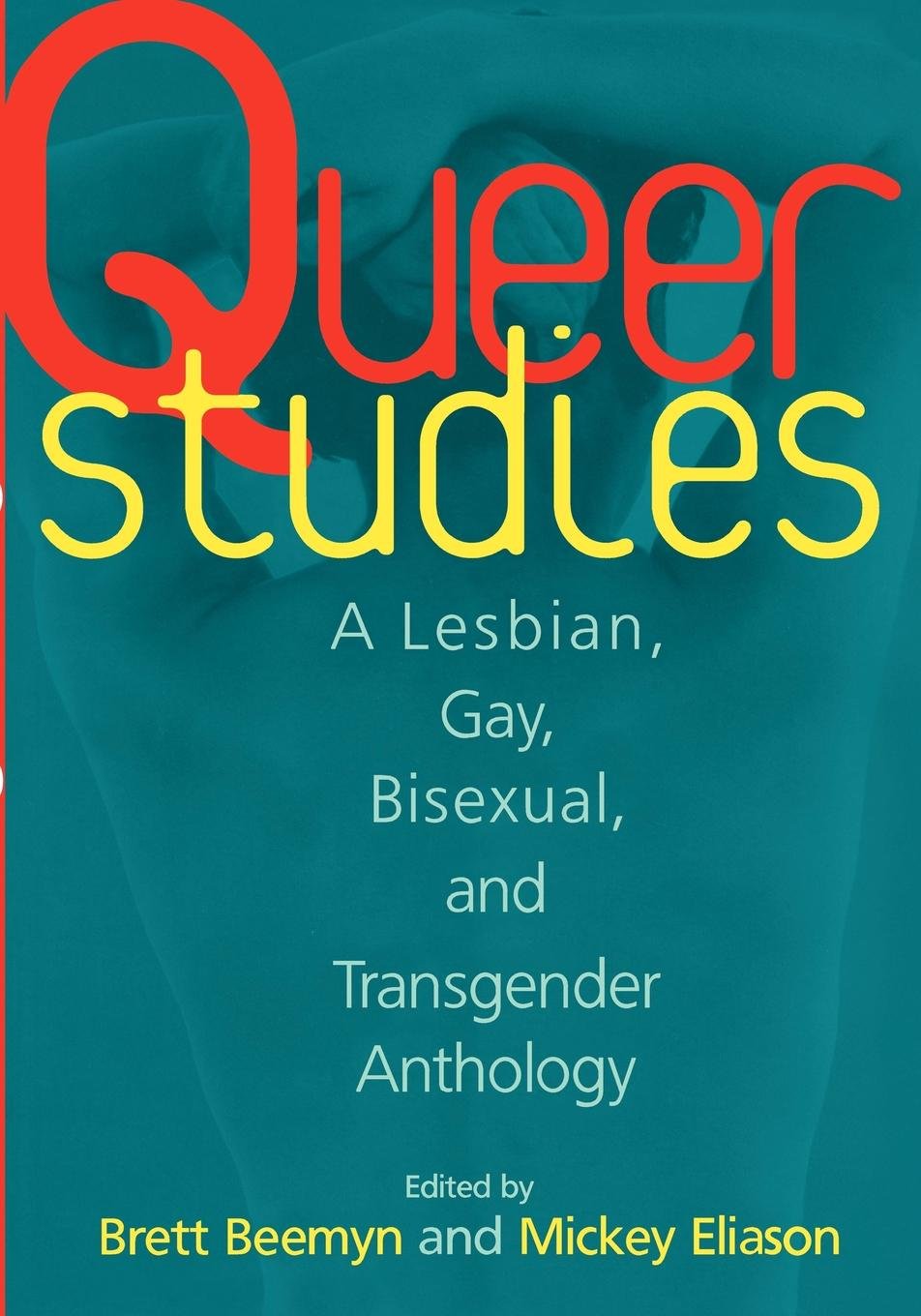
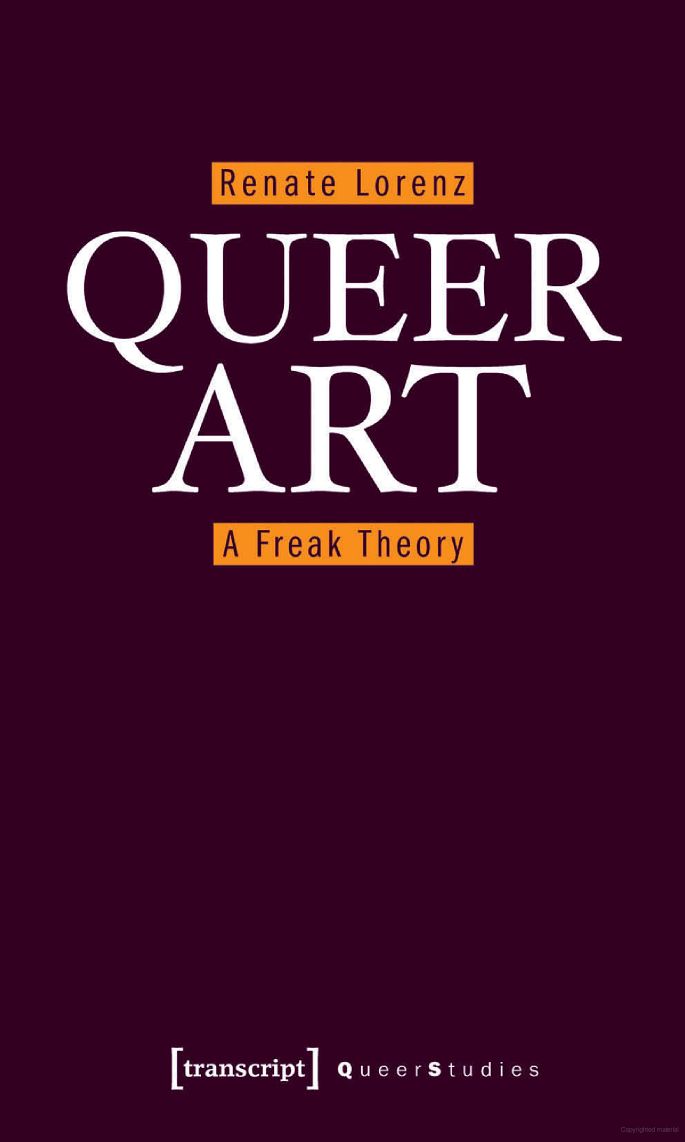
Wikipedia: Queer
Cynthia Nixon: Why
I Identify as Queer
Queer: LGBTQ People Explain
History of the Word Queer
Words the Queer Community Has Reclaimed (and Some We
Haven't)
What Does Queer Mean Today?
Queer 101: Identity and Inclusion
Video:
What is Queer?
Millennials and the Word Queer
USA Today: What Does the Q Stand For?
Explaining Queer to Kids
Queer Insight
Over the last 50 years, language around sexuality and
gender has shifted and changed in incredible ways. New
words have been born. Other words have changed meanings
and usages. One of the more complex of these words is
“queer,” a word that entered the language of sexuality
and gender as a derogatory term but is now worn and
embraced with pride by many.
“Queer” is a multi-faceted word that is used in
different ways and means different things to different
people. Here are some ways that queer is used today:
--Attracted to people of many genders. Although
dominant culture tends to dictate that there are only
two genders, gender is actually far more complex.
“Queer” can be a label claimed by a person who is
attracted to men, women, genderqueer people, and/or
other gender nonconforming people.
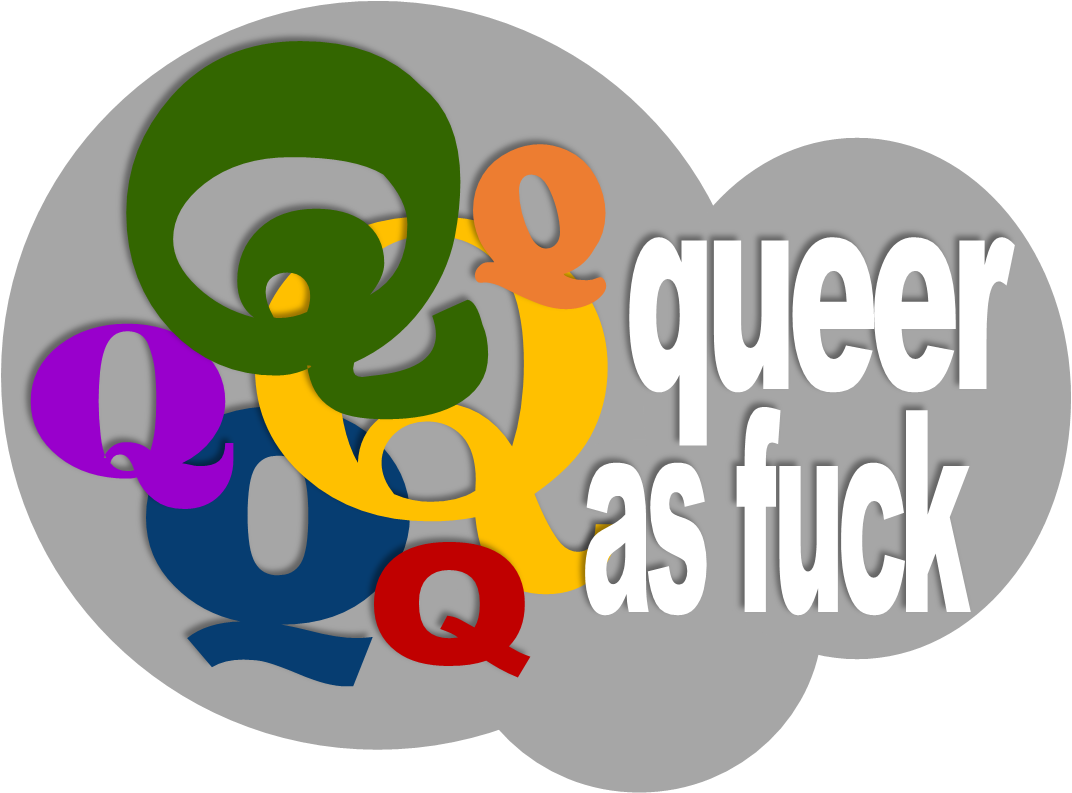
--Not fitting cultural norms around sexuality and/or
gender identity/expression. “Queer” can be a label
claimed by a person who feels that they personally don’t
fit into dominant norms, due to their own gender
identity/expression, their sexual practices, and their
relationship style.
--Non-heterosexual. “Queer” is sometimes used as an
umbrella term to refer to all people with
non-heterosexual sexual orientations or all people who
are marginalized on the basis of sexual orientation.
--Transgressive, revolutionary, anti-assimilation,
challenging of the status quo. Many people claim the
label queer as a badge of honor that has a radical,
political edge. “Queer,” for many folks, is about
resistance—resisting dominant culture’s ideas of
normal, rejoicing in transgression, celebrating the
margins, reveling in difference, blessing ourselves.
--An epithet or slur for someone perceived to be gay or
lesbian. “Queer” is still sometimes used as a derogatory
term. Many people who have had the word queer used
against them are understandably very uncomfortable with
the word.
[Source:
Unitarian Universalist Church]
What’s the Difference Between Gay and Queer?
Cynthia Nixon: Why
I Identify as Queer
Is it Time to Retire the LGBTQ
Acronym For a New Identity?
Bretman Rock:
Unapologetically Queer
USA Today: What Does the Q Stand For?
Words the Queer Community Has Reclaimed (and Some We
Haven't)
Scholarly Insight: Queer
Communities
History of the Word Queer
Jojo Siwa Identifies as Queer, Not
Lesbian
The Term Queer: Offensive
or Empowering
Info: Gender
Queer
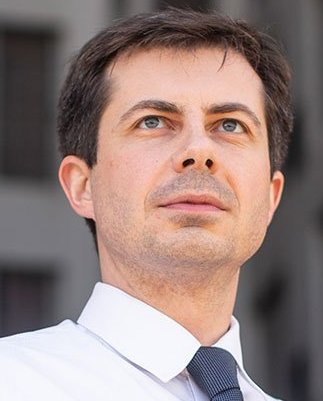
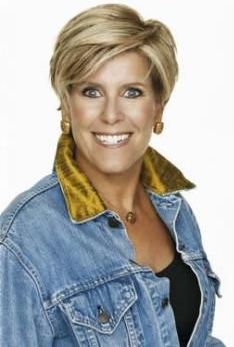
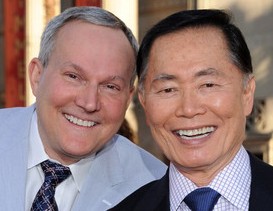 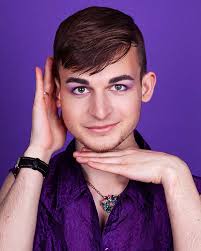
Being More Welcoming and Inclusive
of Queer People
--Respect queer as a valid sexual orientation and
identity label.
--If you personally have negative associations with the
word queer, find ways to open yourself to new
understandings of the word. Do personal, gentle, deep
work in order to honor and respect those who use queer
to describe themselves.
--Include the word “queer” in the language you use to
talk about sexual orientation and gender identity:
“lesbian, gay, bisexual, transgender, and queer” or “LGBTQ.”
--Avoid making assumptions based on your perceptions of
a person’s gender or the gender of the people they
partner with—open yourself to the possibility that any
person, of any age, might identify as queer.
--Learn more about queer identity on your own. You might
start by reading at least two articles or books that
increase your understanding of queer identity.
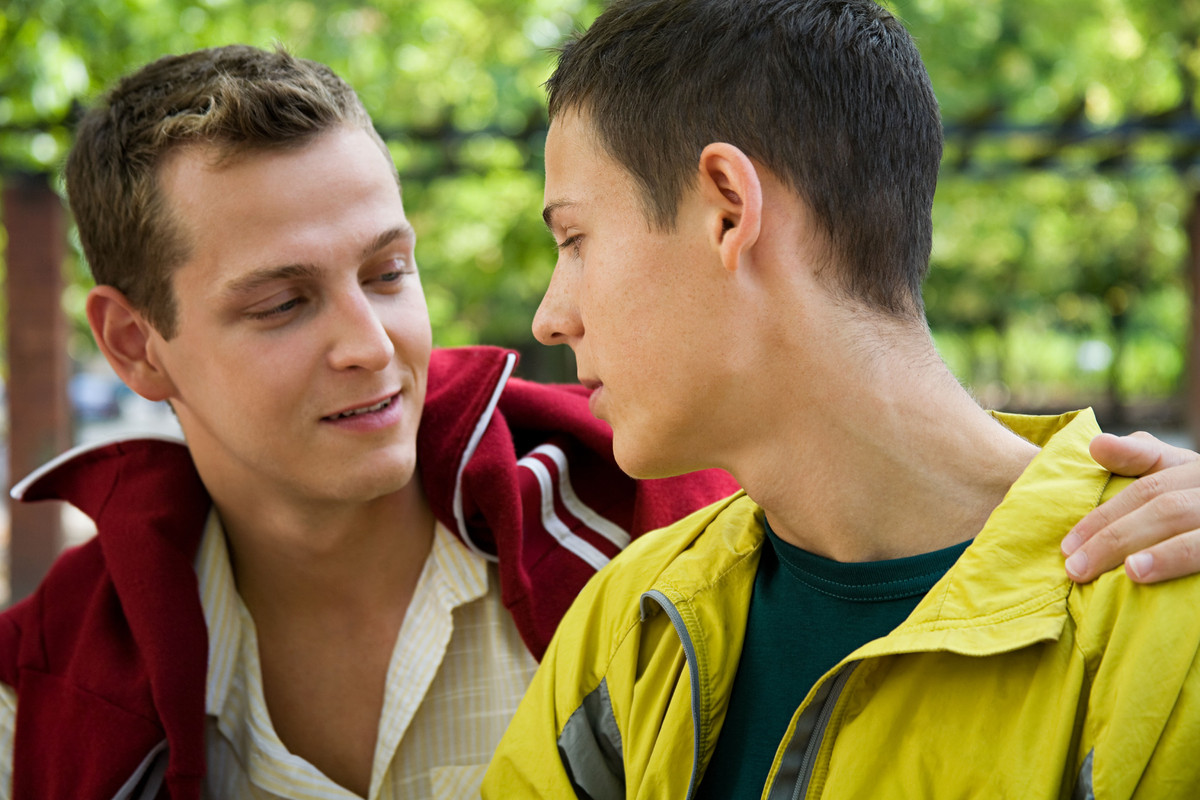
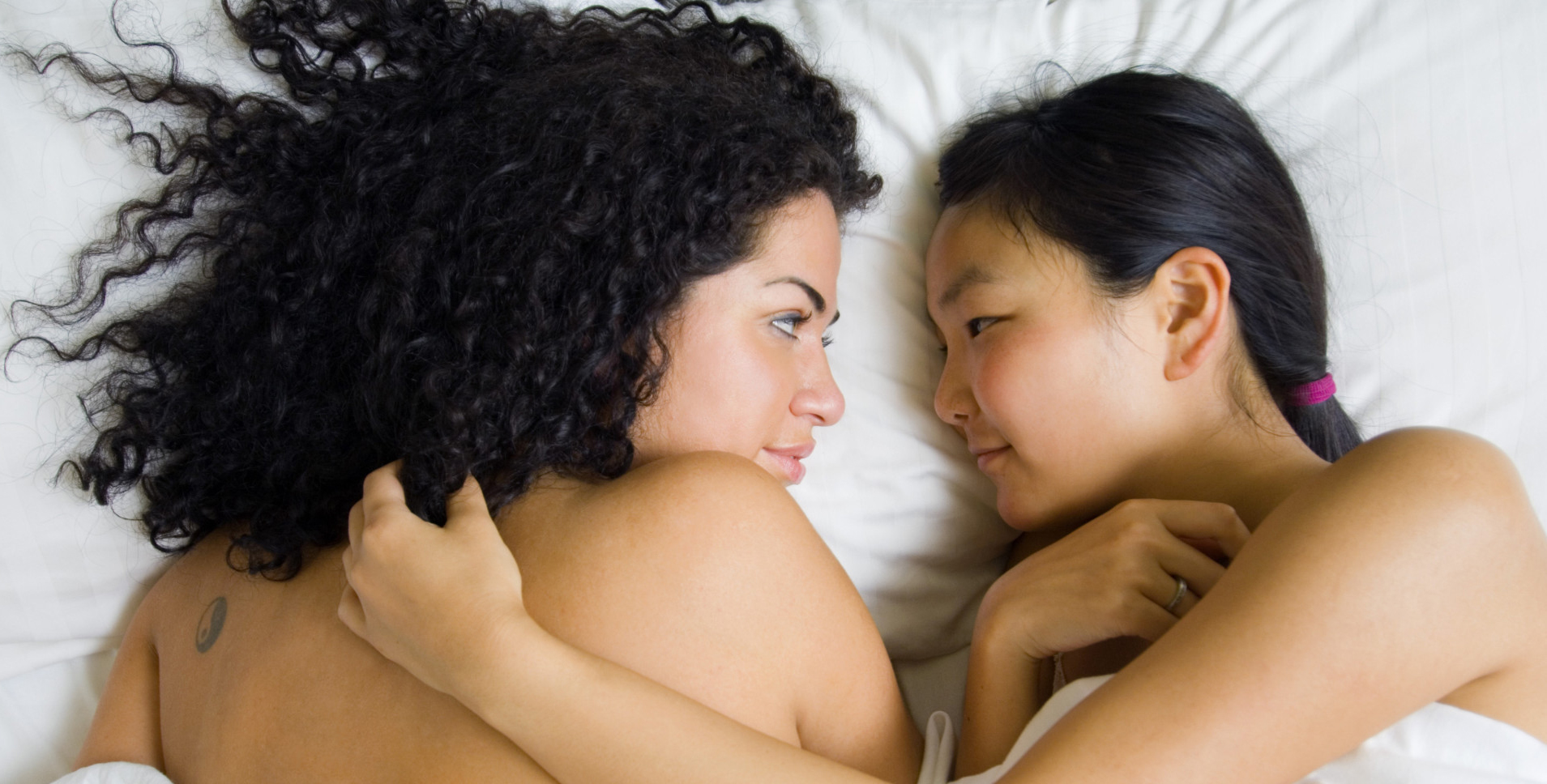
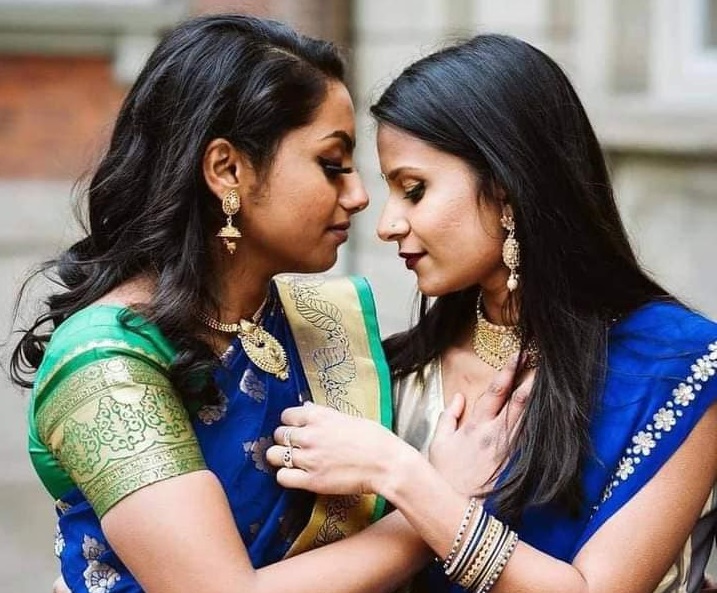
Video:
What is Queer?
USA Today: What Does the Q Stand For?
Explaining Queer to Kids
Gay Times: Reclaiming the Word Queer
Info: Sex and Gender
PFLAG:
Definition of Queer
Huff Post: What it Means to be Queer
--Dominant culture teaches us to depend on dualisms.
Challenge yourself to eradicate dualisms from your
language and your understanding of the world. Gay and
straight, masculine and feminine, black and white: all
dualisms obscure so many shades of grey, shades of
queer, shades of androgyny and fluidity. Open yourself
to this infinite variety.
--Use terms that encompass all genders rather than only
two (“children” instead of “boys and girls,” “people”
instead of “women and men,” “siblings” or “kindred,” or
“brothers and sisters and siblings of all genders”
instead of “brothers and sisters”).
--Expand the ways that sexual orientation is understood
and discussed in your circle of influence beyond the
idea that sexual orientation is a born-in, static trait.
Although many people believe themselves to have been
born lesbian, gay, bisexual, queer, or straight, others
experience sexuality as fluid and changing throughout
their lifetime. Honor this diversity of experience
through the ways you talk and teach about sexual
orientation.
--Do continuing education among your friends and
colleagues on bisexual and queer issues.
--Queerness is often located at the margins. Consider
how your group or organization’s welcome, advocacy, and
service around LGBTQ issues can be more grounded in the
experiences and needs of those who are most
marginalized, such as queer and trans youth, queer and
trans people of color, and undocumented queer and trans
immigrants.
[Source:
Unitarian Universalist Church]
Video: What Does
Queer Really Mean?
Queer: Offensive Term?
Cosmopolitan: Queer Means Identity and Community
Bustle: What Does Queer Mean?
Explaining Queer to Kids
Is it Time to Retire the LGBTQ Acronym
For a New Identity?
Queer
101: Identity and Inclusion
Video History of the Word "Queer"
PFLAG:
Definition of Queer
Info: Origins of Homosexuality
How the Word Queer Was Adopted by the LGBTQ Community
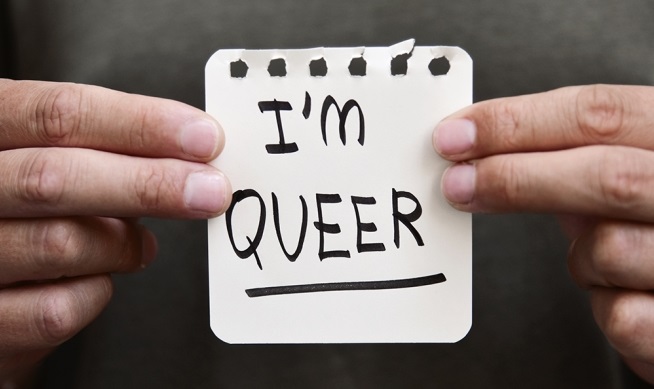
Rebranding Queer
In America, some say “queer” was the first term used to
describe homosexuals. “Queer” first became an antigay
slur during the trials of Oscar Wilde. So many zingers
are recorded from those trials that this seems
plausible: Sir John Douglas, the Marquess of Queensbury,
who first called Wilde a sodomite and launched the gay
playwright’s epic demise, reportedly called Wilde a
“snob queer” during the proceedings. The press recorded
it and the slur stuck.
“Queer” got rebranded in the ’90s during the AIDS
crisis. “We’re here, we’re queer” became a protest
mantra. Anarcho-queers in the queer punk music
scene rallied around “queercore," a term some credit to
cult filmmaker Bruce LaBruce. A common slogan you can
still find on t-shirts and in queer bars across the
country is “Not gay as in happy, but queer as in fuck
you.”

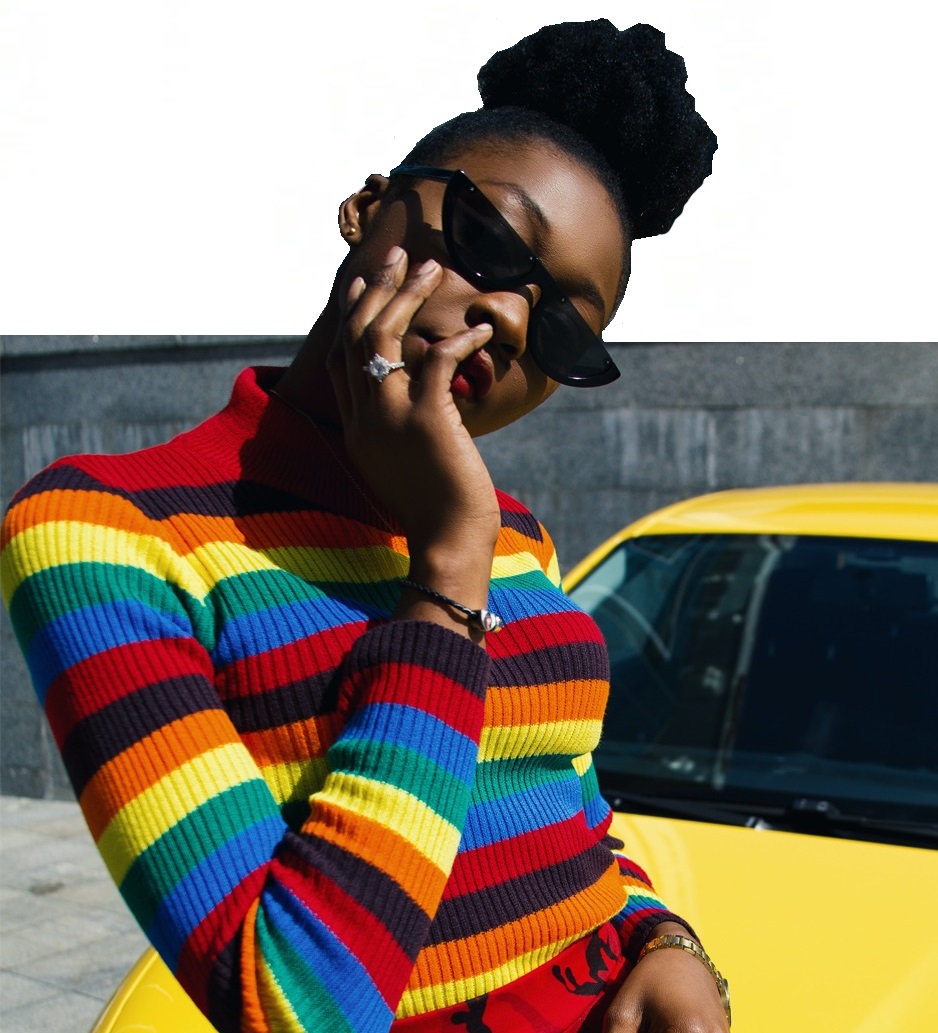
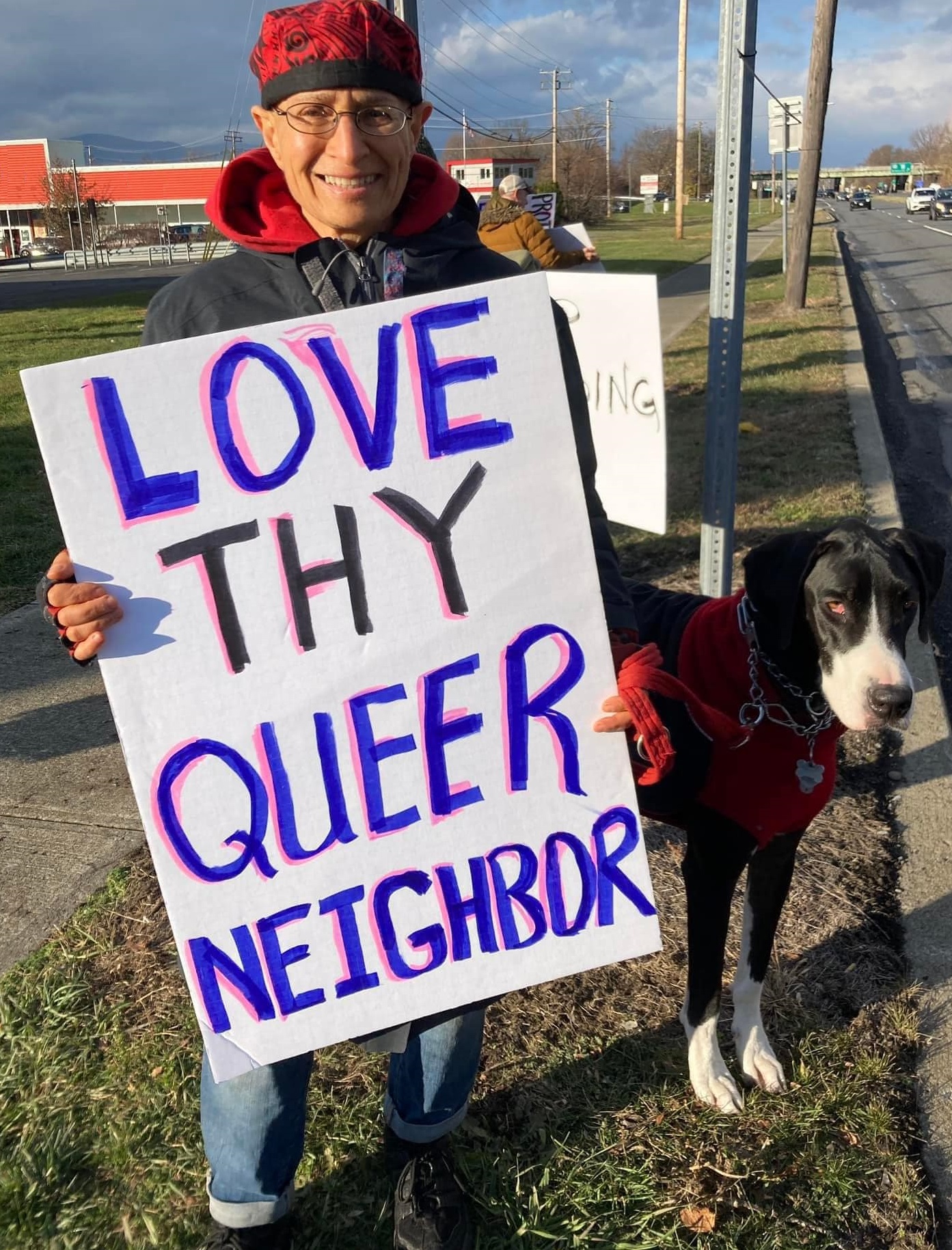
Wikipedia: Queer
Urban Dictionary: Queer
Bustle: What Does Queer Mean?
Video History of the Word "Queer"
Queer 101: Identity and Inclusion
Is it Time to Retire the LGBTQ
Acronym For a New Identity?
Info: Sexual
Orientation
Queer: LGBTQ People Explain
With the advent of queer theory and the launch of Queer
as Folk, “queer” became used online as a more concise
umbrella term than the full LGBTQ acronym (which,
depending on who you ask, could be lengthy as
LGBTQQIP2SAA).
Today, interpretations of “queer” go a step further, and
its acceptance generally splits along generational
lines. Many young people view “queer” as a term defining
all nonstraight, nonbinary identities. “Queer” addresses
the fluidity of gender and sexual orientation and
defines those who use it as people focused on problems
largely ignored by the gay rights movement: racism, wage
inequality, women’s rights, transphobia, and so on.
Queers both respect our history and push us to be
better.
Case For: By resisting an easy definition,
“queer” challenges us to talk about identity. People
with identities outside “gay, straight, or bi” feel
represented by “queer.”
Case Against: Many folks in our community
remember “queer” painfully, as a word often used to
demean feminine men. Should such a word be reclaimed?
[Source: Alexander Cheves, Advocate, Jan 2023]
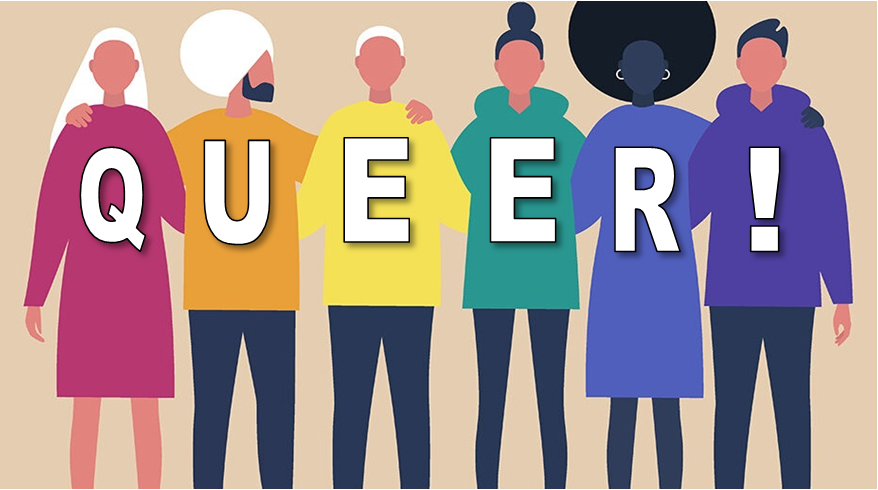
Wikipedia: Queer
Urban Dictionary: Queer
The Term Queer:
Offensive or Empowering
Scholarly Insight:
Queer Communities
History of the Word Queer
LGBTQ People Explain How They
Love and Hate the Word Queer
Queer 101: Identity and Inclusion
Info: Sexual
Orientation
Video:
What is Queer?
Millennials and the Word Queer
Bustle: What Does Queer Mean?
What’s the Difference Between Gay and Queer?
Queerness is
Universal
“Queer,” before it was associated with the LGBTQ
community, meant simply: strange, peculiar, unusual, out
of the ordinary. Implicit in this meaning is the fact
that most people, in most respects, are not queer. Yet,
it is also simultaneously true that most—or arguably all
people—have at least one characteristic that deviates
from the norm. Being ordinary in most ways is not
synonymous with being ordinary in all ways. This means
that logically, most, or even all people are, in fact,
“queer” in some respect.
Tailors owe their livelihoods to this fact about people.
It is rare for off-the-rack clothes to fit anyone
perfectly. Most of us are either taller or shorter than
average, heavier or thinner, have broader or narrower
shoulders, a thicker or thinner neck, longer or shorter
arms or legs, etc. Even the rare person who is truly
“average” in all of these respects could be left handed
(which affects which shirt sleeve is made shorter for a
watch). A poetic sensibility might be inclined to see
these peculiarities as the stuff of which humanity is
made. How boring would life be if we were all the same?

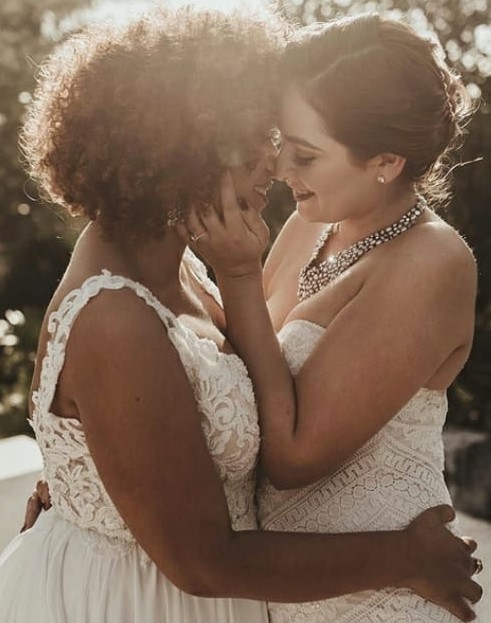
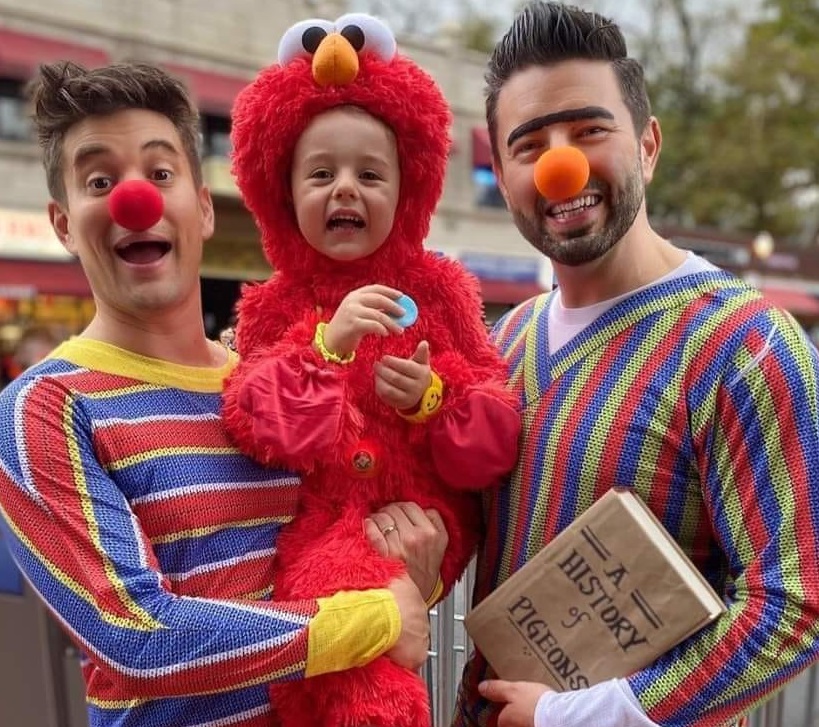
USA Today: What Does the Q Stand For?
Explaining Queer to Kids
Queer: LGBTQ People Explain
Gay Times: Reclaiming the Word Queer
Info: Sex and Gender
Cosmopolitan: Queer Means Identity and Community
PFLAG:
Definition of Queer
Video History of the Word "Queer"
Huff Post: What it Means to be Queer
Info: LGBTQ
Where emotions, passions, and resulting behaviors are
involved, our peculiarities are amenable to social
pressures. We might feel pressured, for example, to hide
our love of country music in the company of urbane
critics, or to keep our appreciation for avant-garde hip
hop close to our chest in rural Louisiana. This doesn’t
mean we love those musical styles any less, only that we
might feel inclined to keep these sentiments to
ourselves. These quirks are what differentiate us from
others and make us ourselves.
This fact is equally true in the arena of sex and
relationships. Most people may be heterosexual (or at
least mainly so), but likely all differ from the norm in
other respects. For example, an individual could be a
stay-at-home dad, an enthusiast for BDSM, a polyamorous
person, a foot fetishist, part of a couple that chooses
to forgo having children, a “chubby chaser,” or even the
long-derided “old maid.”
Clearly, LGBTQ people don’t have a monopoly on
possessing proclivities outside the norm. In the past,
as a term of judgment or derision, “queer” was not
reserved exclusively for LGBTQ people. Those with
prudish attitudes used it to speak ill of women who
enjoyed sex too much, of people who openly had sex
before marriage, of married couples who didn’t at least
pretend at the practice of monogamy, of interracial
couples, of those who practiced all manner of taboo sex
acts, etc.
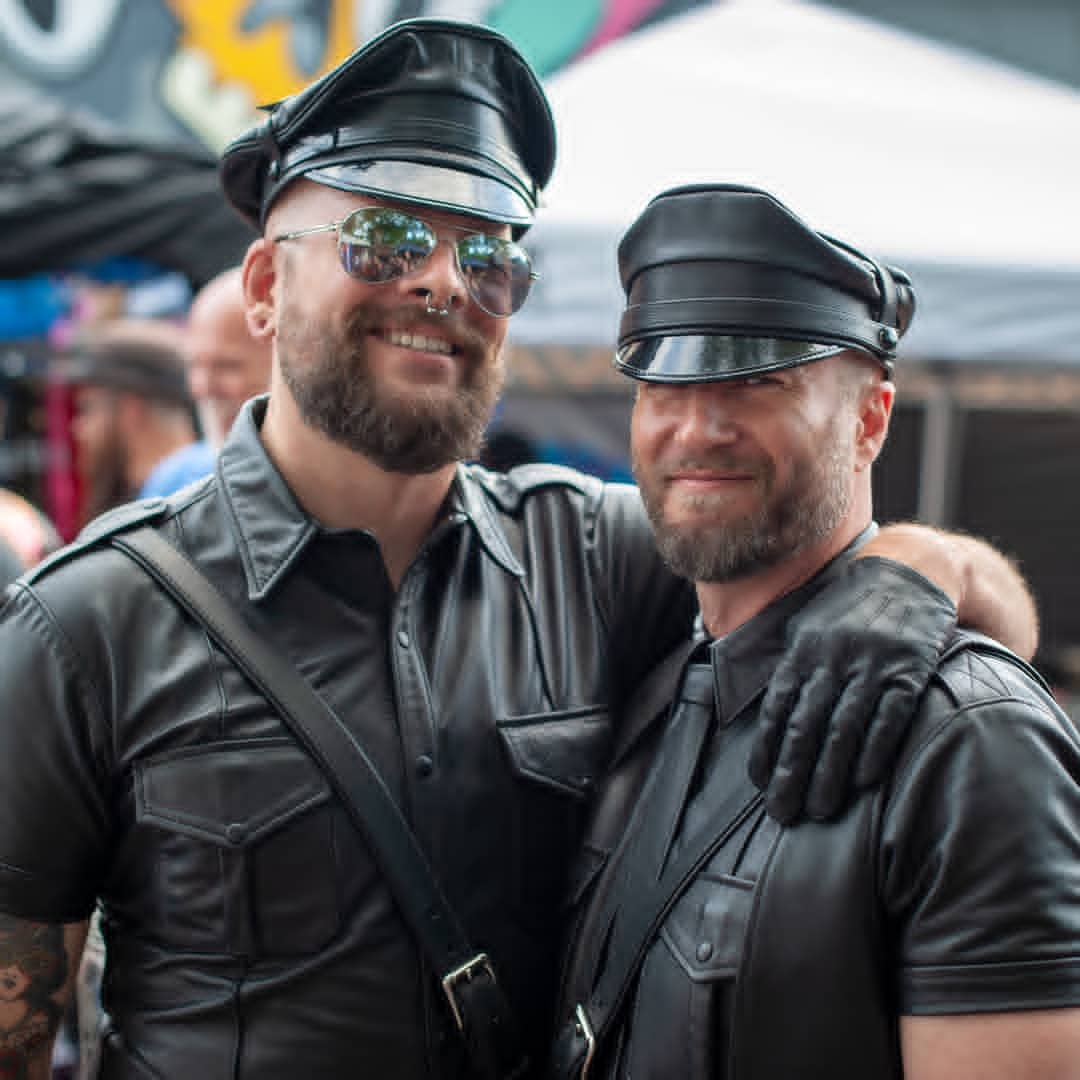
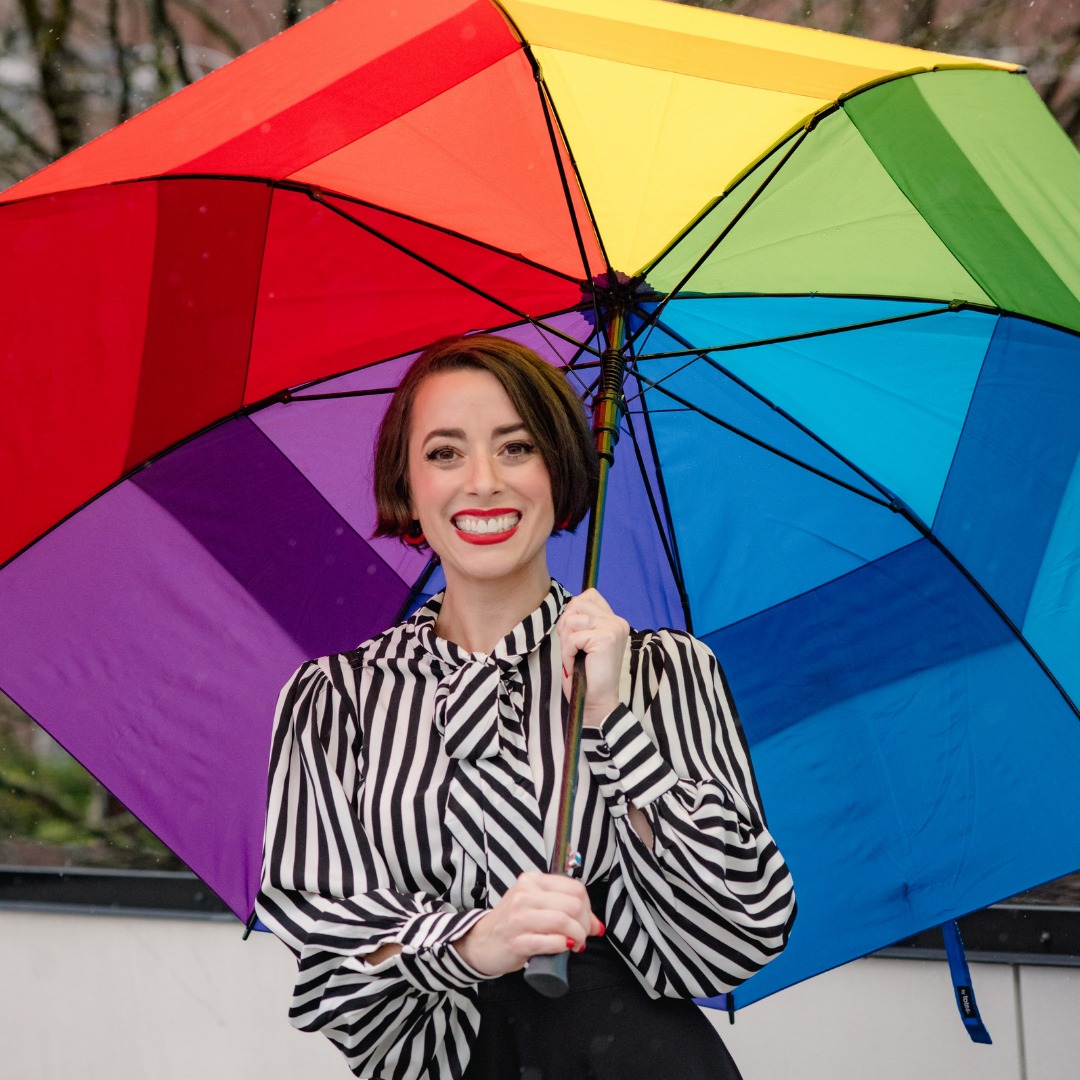
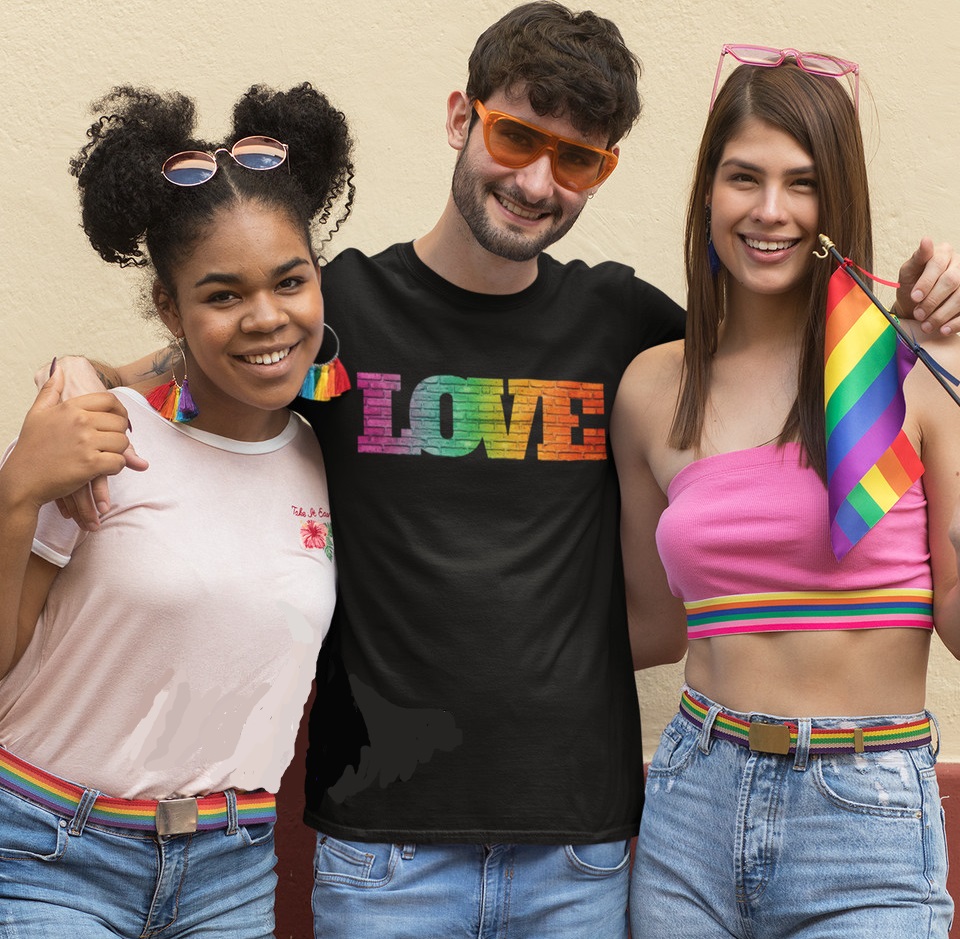
Wikipedia: Queer
Urban Dictionary: Queer
The Term Queer:
Offensive or Empowering
Scholarly Insight:
Queer Communities
History of the Word Queer
LGBTQ People Explain How They
Love and Hate the Word Queer
Queer 101: Identity and Inclusion
Info: Sexual
Orientation
Video:
What is Queer?
The use of the word “queer” to refer explicitly to LGBTQ
people has also never been universally accepted by
members of the community. Some activists, for example,
reject its use, while others advocate for a broader use
of the term. In academia, there is an ongoing discussion
of whether to use “queer” solely to refer to LGBTQ
people or to use it more generally to refer to all
people who do not conform to arbitrary norms around sex
and relationships.
In the developed world, much progress has been made on
the front of LGBTQ rights. Same sex marriage,
decriminalization of homosexual sex, and protection from
discrimination on the basis of sexual orientation and
gender identity are becoming the norm in liberal
democracies. In some places, the legal consequences of
stigmas against BDSM or polyamory are more oppressive
than those against the LGBTQ community. It is thus
simply a fact that some straight people experience more
legal discrimination than some LGBTQ people.
In less liberal parts of the world, legal discrimination
against certain sexual or romantic practices is still
not limited to the LGBTQ community. Sex and relationship
practices privately enjoyed by most straight North
Americans or West Europeans are outlawed by many of the
same illiberal countries that continue to outlaw
consensual homosexuality or same sex marriage.
Prohibitions against anal and oral sex, extramarital
sex, and marriage between different religious, ethnic or
socioeconomic groups restrict the freedoms of people of
all sexual orientations and gender identities.
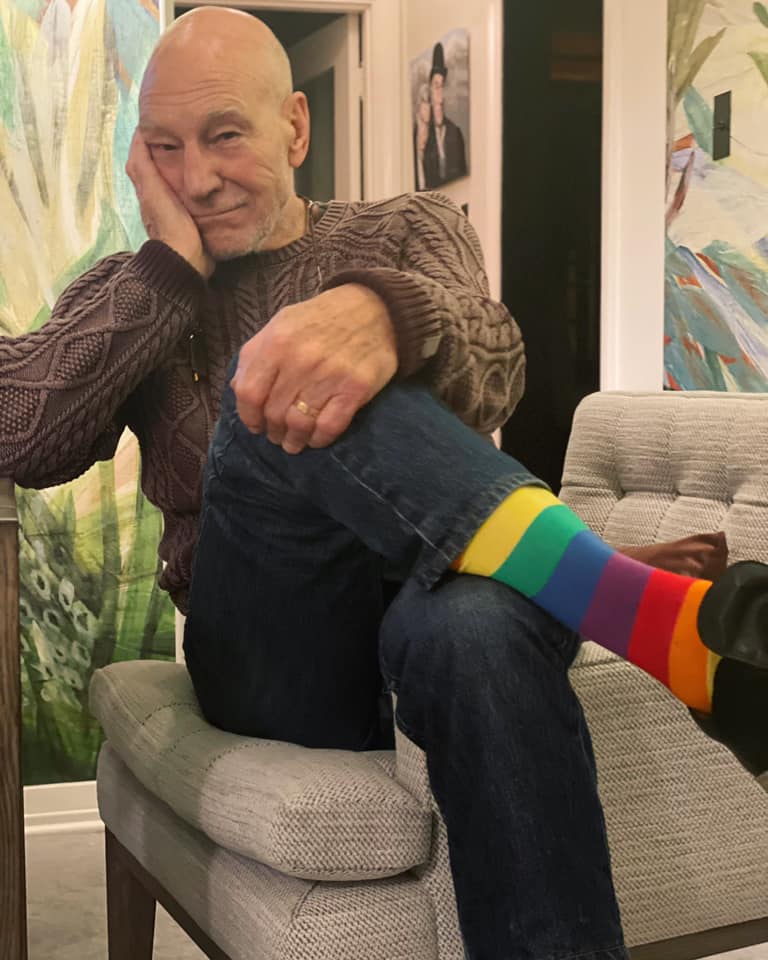
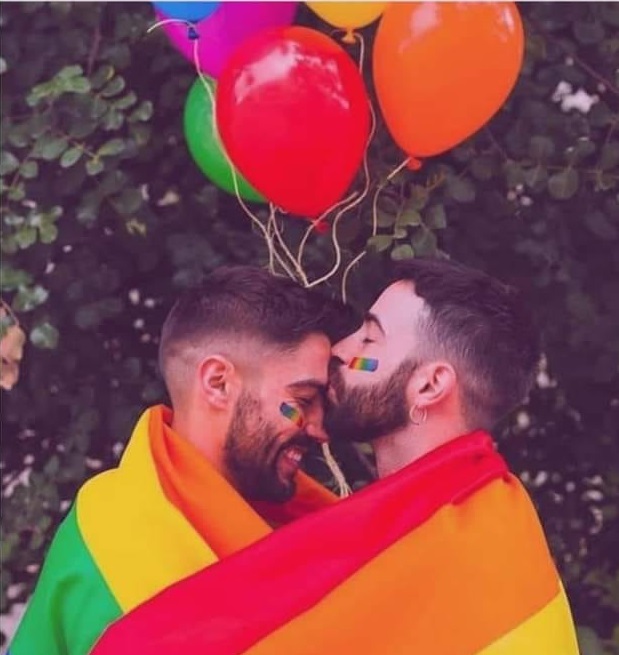
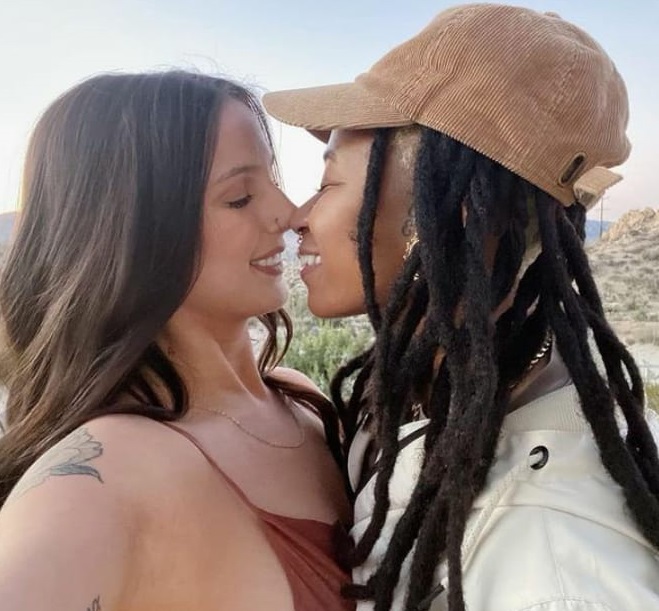
Queer
101: Identity and Inclusion
Video History of the Word "Queer"
Is it Time to Retire the LGBTQ Acronym
For a New Identity?
PFLAG: Definition
of Queer
Info: Origins of Homosexuality
How the Word Queer Was Adopted by the LGBTQ Community
Gay Times: Reclaiming the Word Queer
Info: Sex and Gender
PFLAG:
Definition of Queer
Huff Post: What it Means to be Queer
It is therefore both ahistorical and reductive for the
LGBTQ community to claim absolute ownership over the
word “queer.” We are not the only group of people to
whom it has been applied derogatorily, there is no
universal agreement among activists and academics about
to whom the term should be applied today, and we are not
the only people impacted negatively by prohibitions
related to sex and relationships.
Regardless of our location, we all have the moral
imperative to preserve equality under the law. It does
us no favors to alienate cis-straight people with a
divisive narrative. Our hard won freedoms will be better
preserved by telling a story about how everyone,
including cis-straight people, benefits from the
protection of liberties around sex and relationships. In
less liberal parts of the world, too, LGBTQ people have
common cause with cis-straight men and women who are
similarly oppressed by prohibitions around sex and
relationships.
The need to preserve our liberties applies to all
people—not just those belonging to the LGBTQ community.
Our concerns are personal to us but not morally superior
to those of anyone else. Equality under the law is a
universal value of Liberalism upon which no one holds a
monopoly. Even in the specific domain of rights related
to sex and relationships, LGBTQ people aren’t the only
ones who know what it is like to be “queer” in one or
another respect. For these reasons, it is acceptable,
and arguably better rhetorical strategy, to use the word
“queer” in a much broader manner—one that returns to the
original meaning of the term and celebrates the fact
that all people, not just those of the LGBTQ community,
benefit from the tolerance of sexual and romantic
diversity.
[Source:
Rio Veradonir, Queer Majority, December 2021]
Wikipedia: Queer
Urban Dictionary: Queer
Bustle: What Does Queer Mean?
Video History of the Word "Queer"
Queer 101: Identity and Inclusion
Info: Sexual
Orientation
Queer: LGBTQ People Explain
Video:
What is Queer?
USA Today: What Does the Q Stand For?
Explaining Queer to Kids
Gay Times: Reclaiming the Word Queer
Info: Sex and Gender
PFLAG:
Definition of Queer
Huff Post: What it Means to be Queer
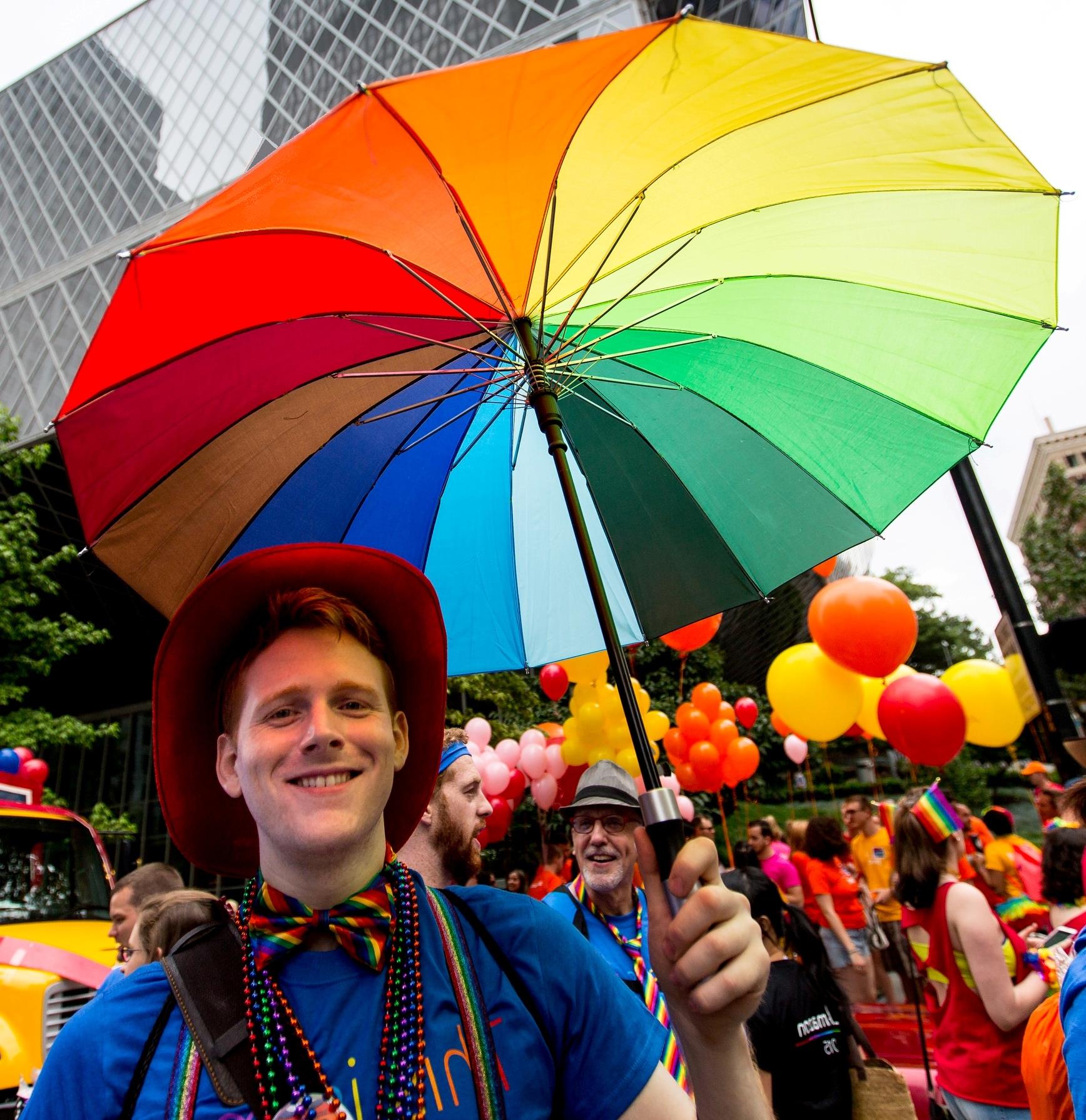
The Queer
Umbrella
How broad is the Queer umbrella? What sexual minorities
should be included under the Queer umbrella? Is the
Queer community represented by more than just sexual
orientation and gender identity? What about lifestyles? Should the kink/leather
community be included? Should asexuals be included?
Should the poly community be included? Should intersex
people be included?
I Don't Do Boxes: The Queer Umbrella
Orientation and Identity Under One Queer Umbrella
Is it Time to Retire the LGBTQ Acronym
For a New Identity?
Farrago Mag: The Queer Umbrella
Video: The Queer Umbrella
Should BDSM be Included Under the LGBTQ Umbrella?
Does Asexuality Fall Under the Queer Umbrella?
Polyamory is Not Necessarily Queer
HOME
QUEER CAFE
│ LGBTQ Information Network │ Established 2017
|